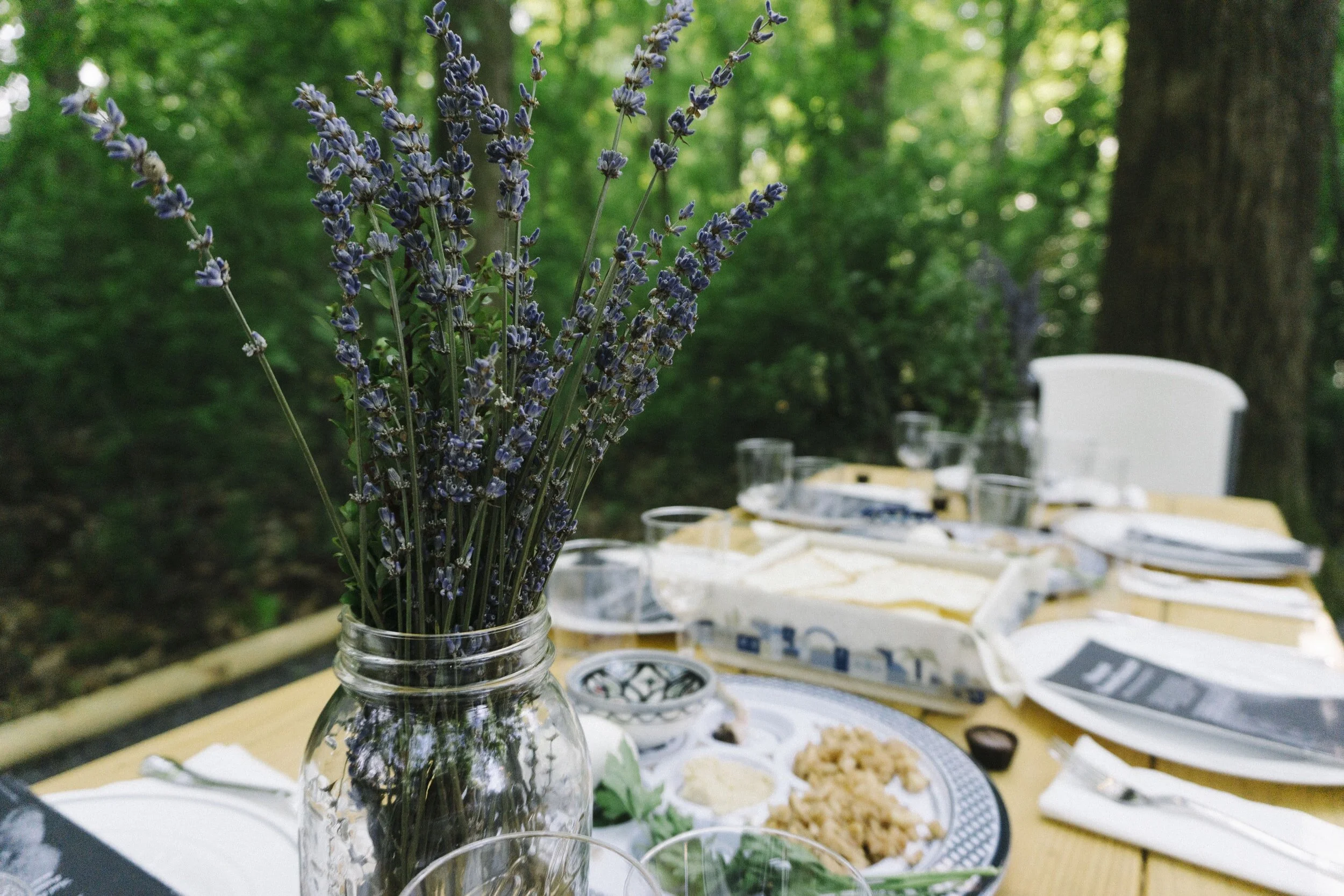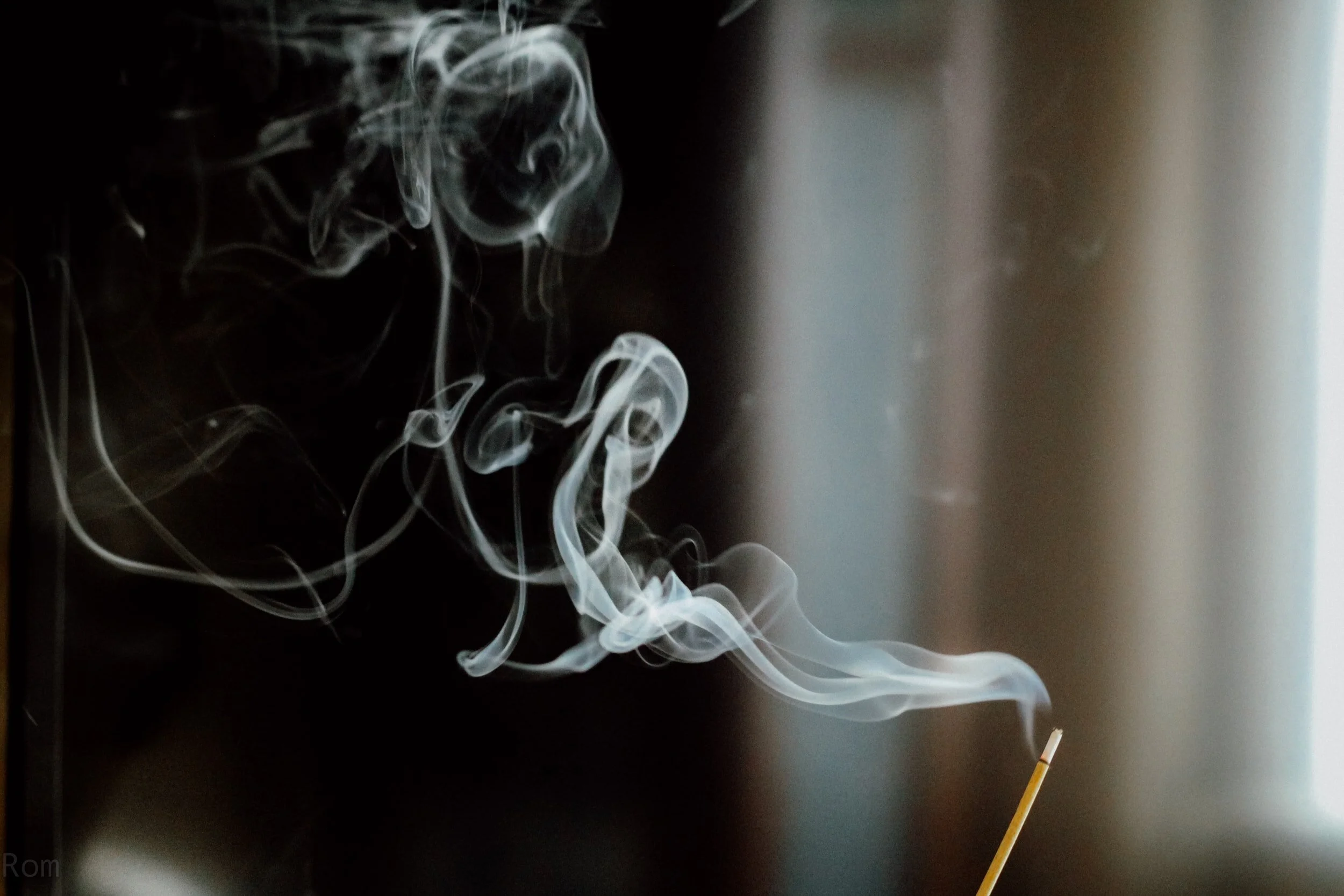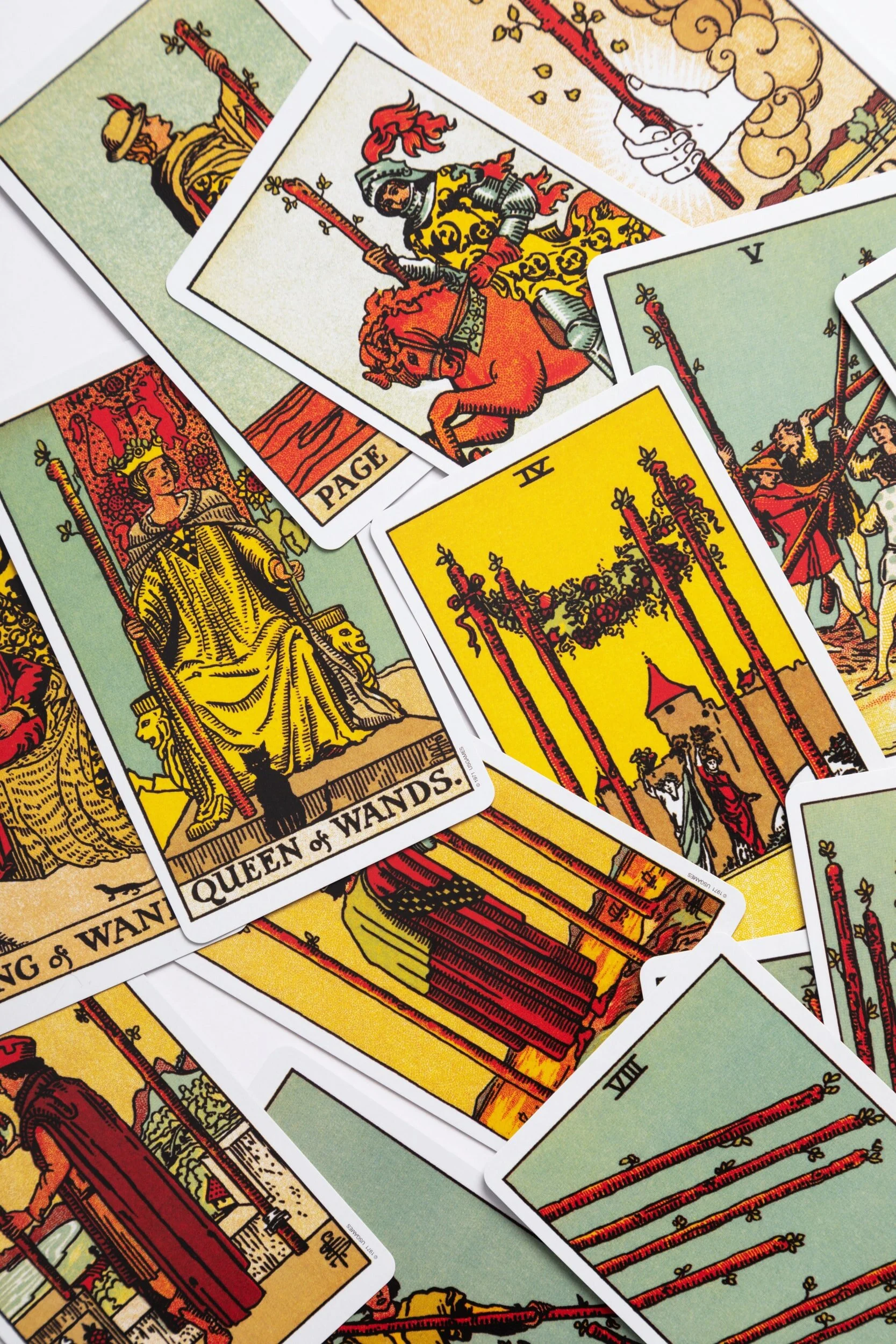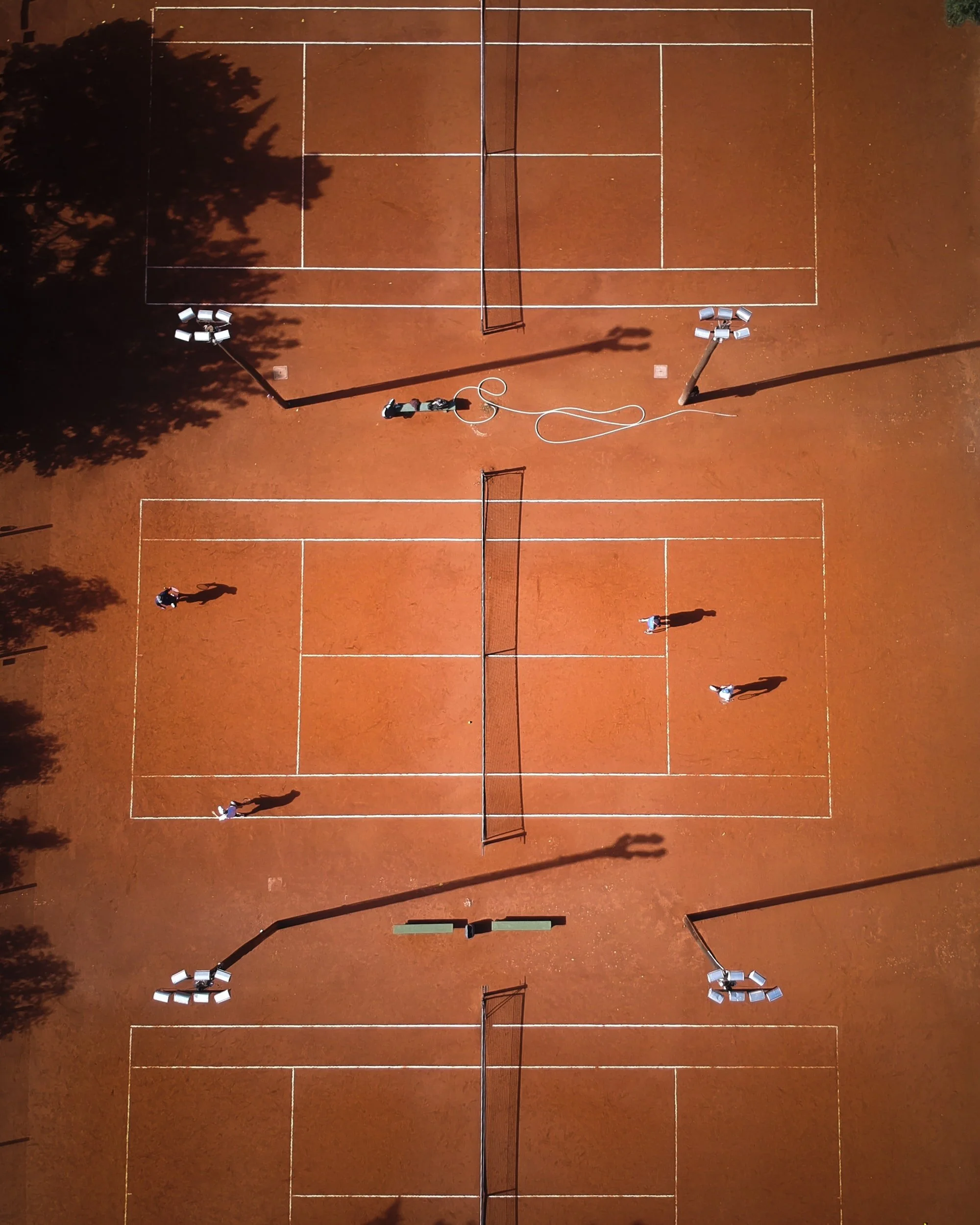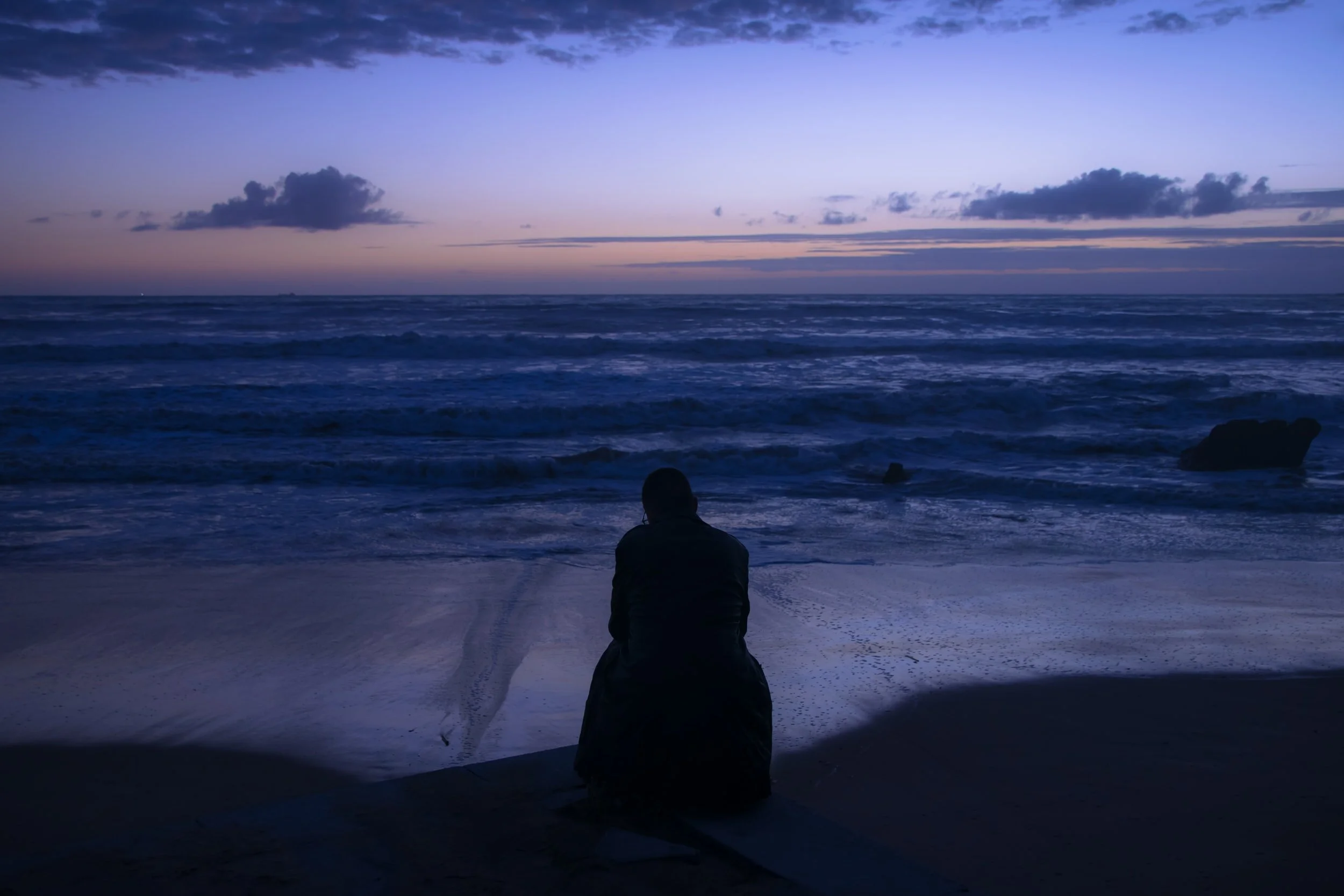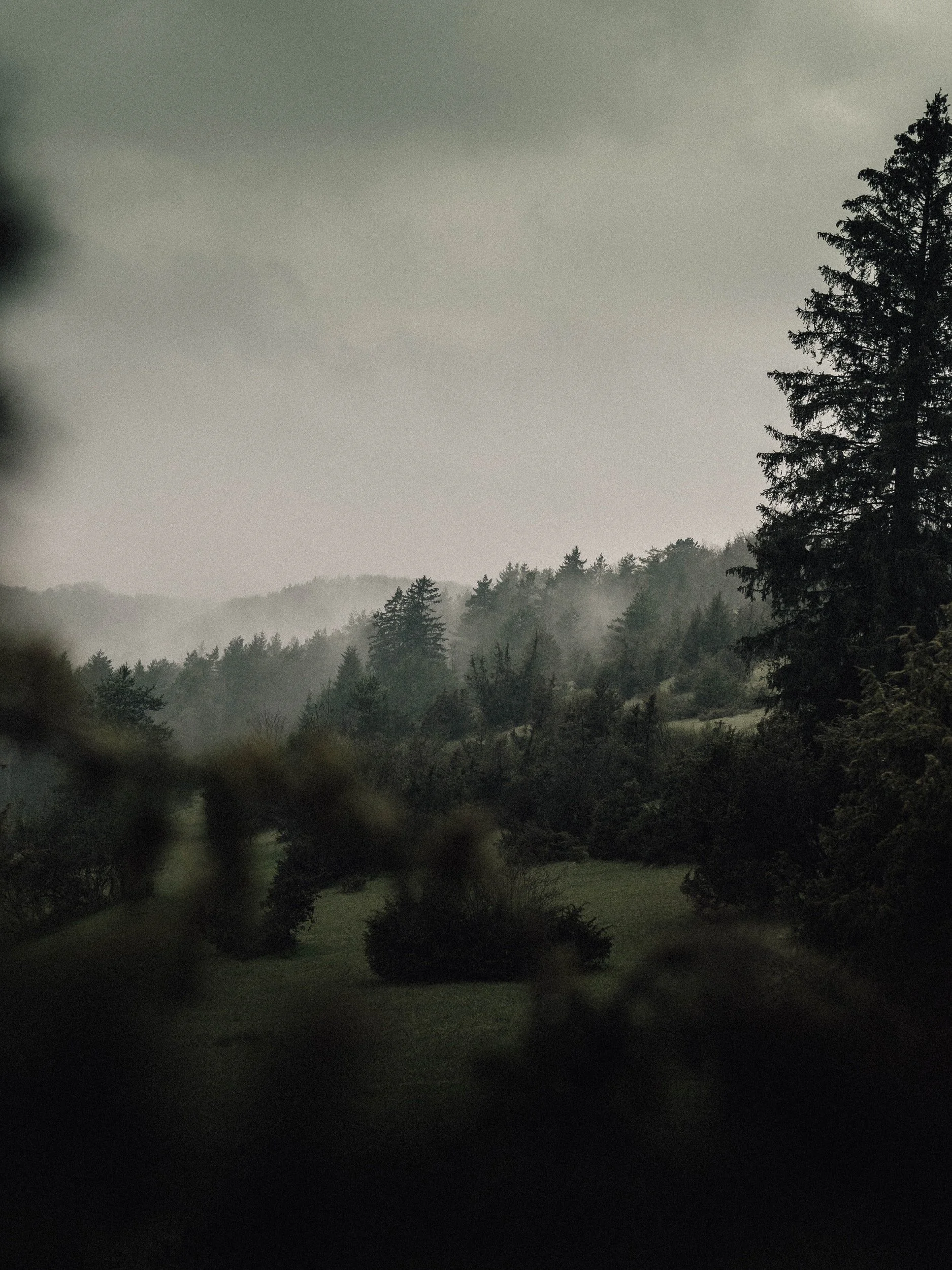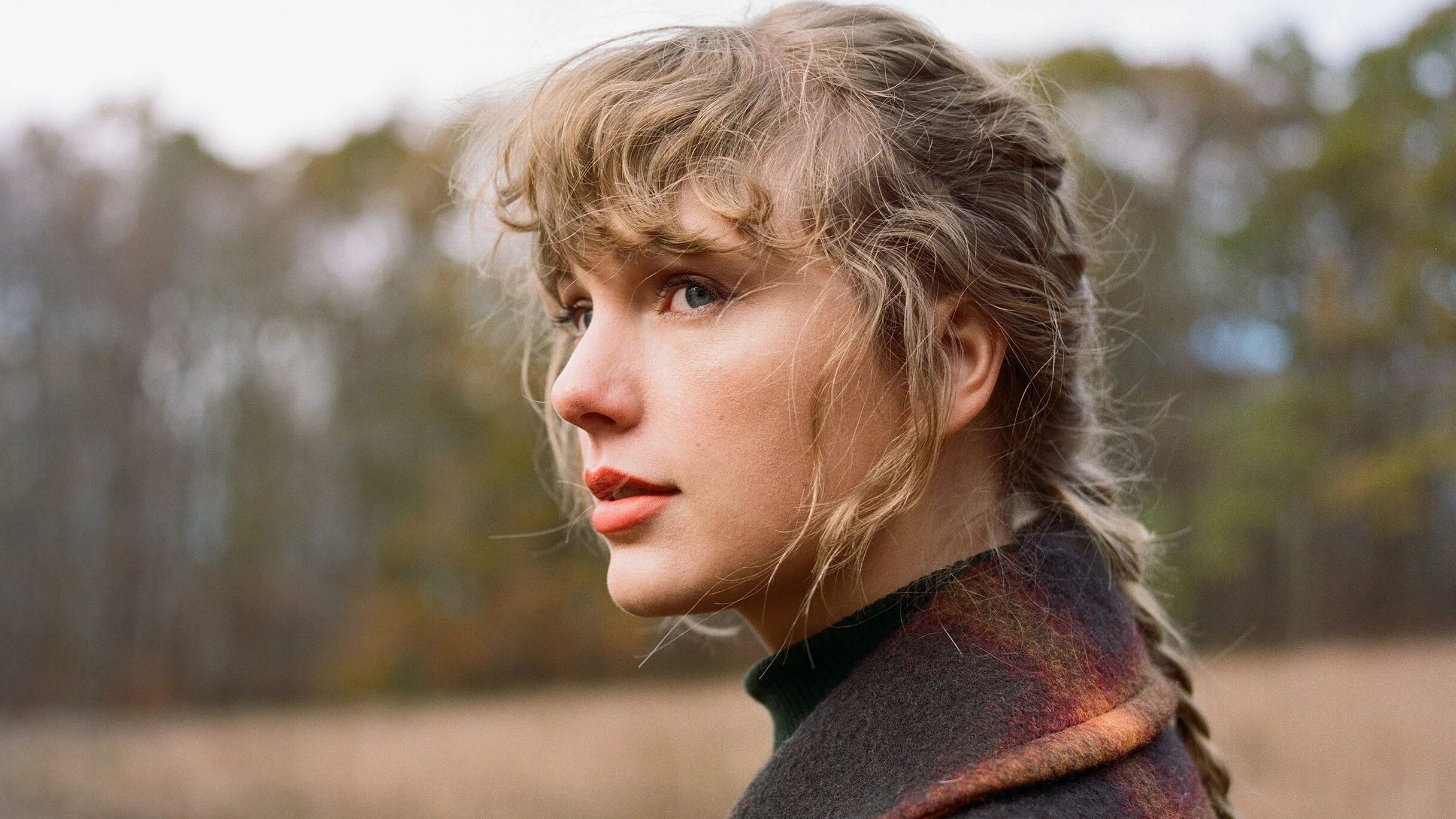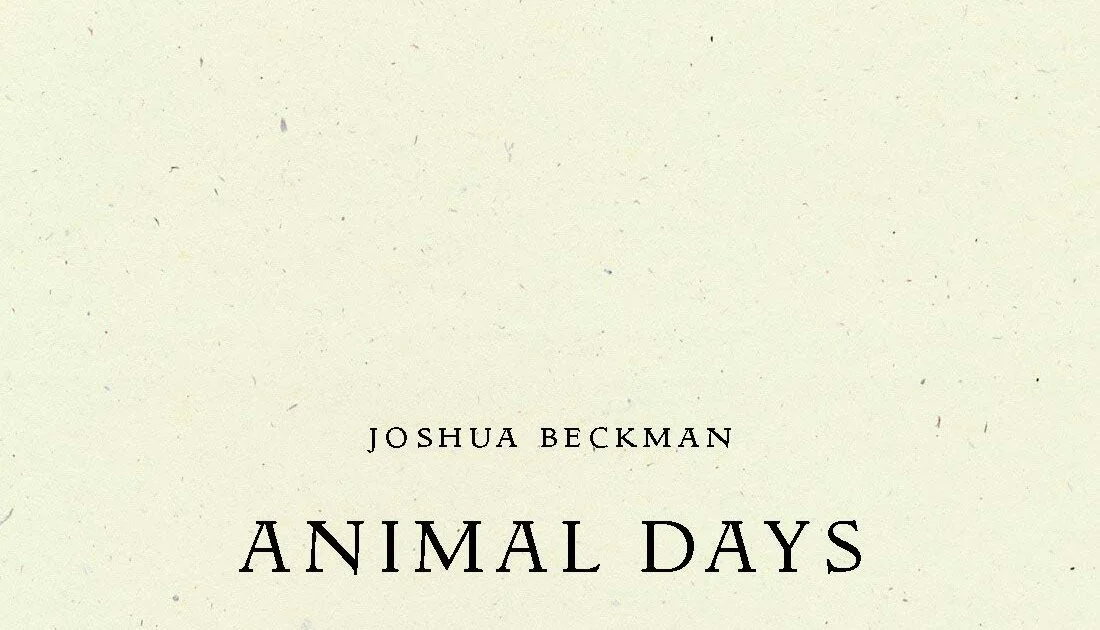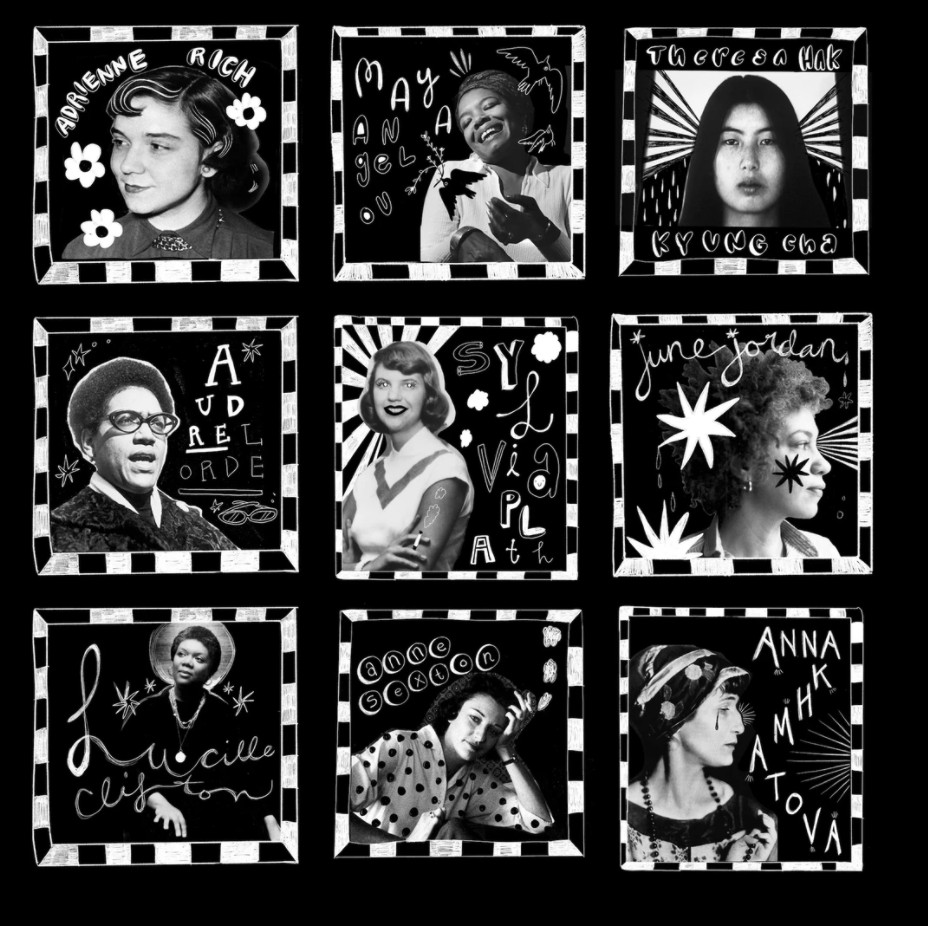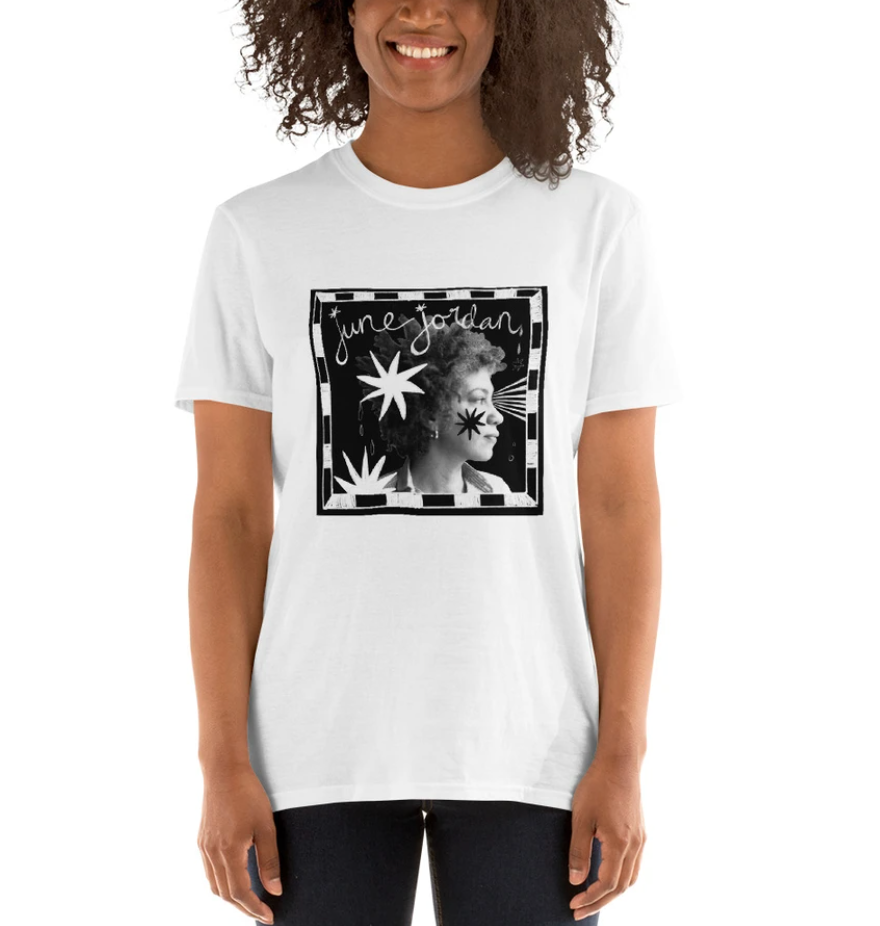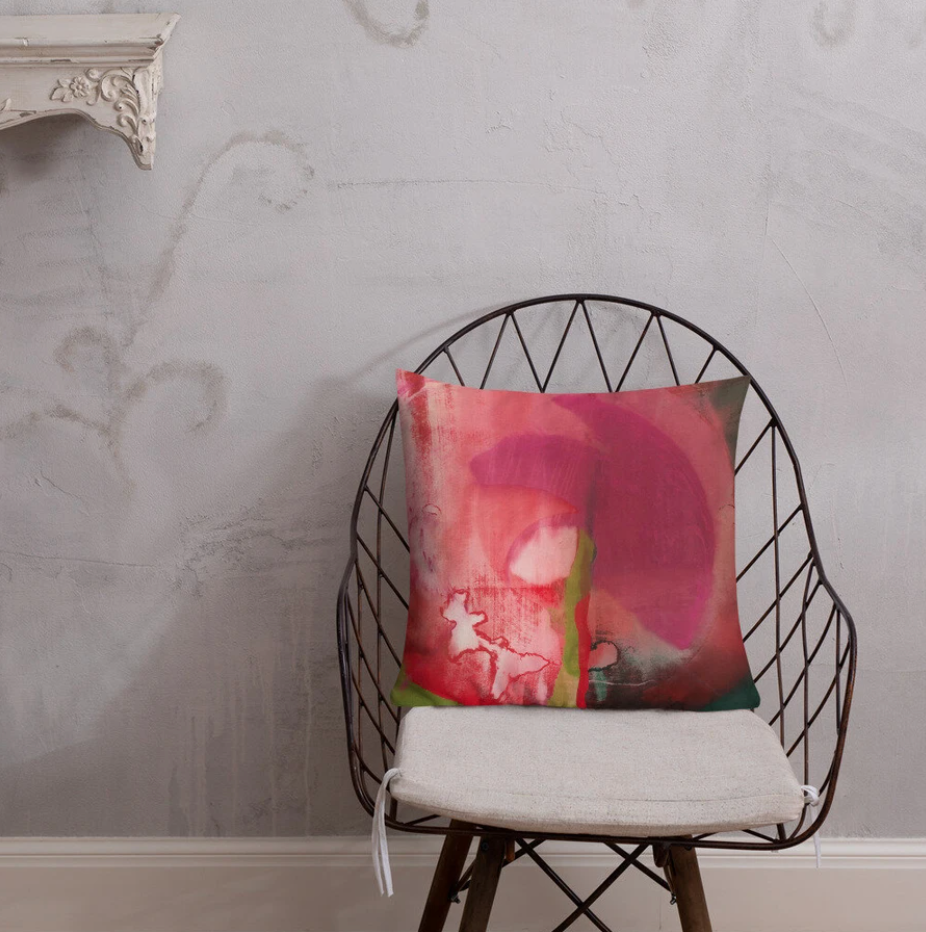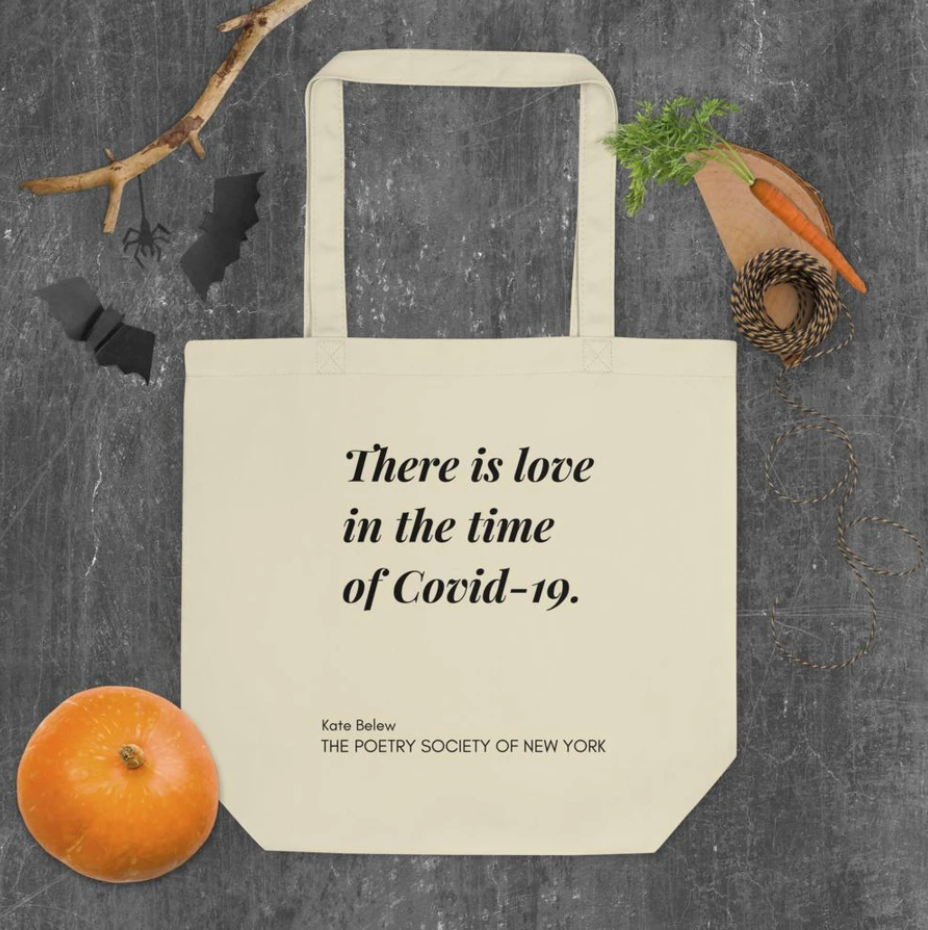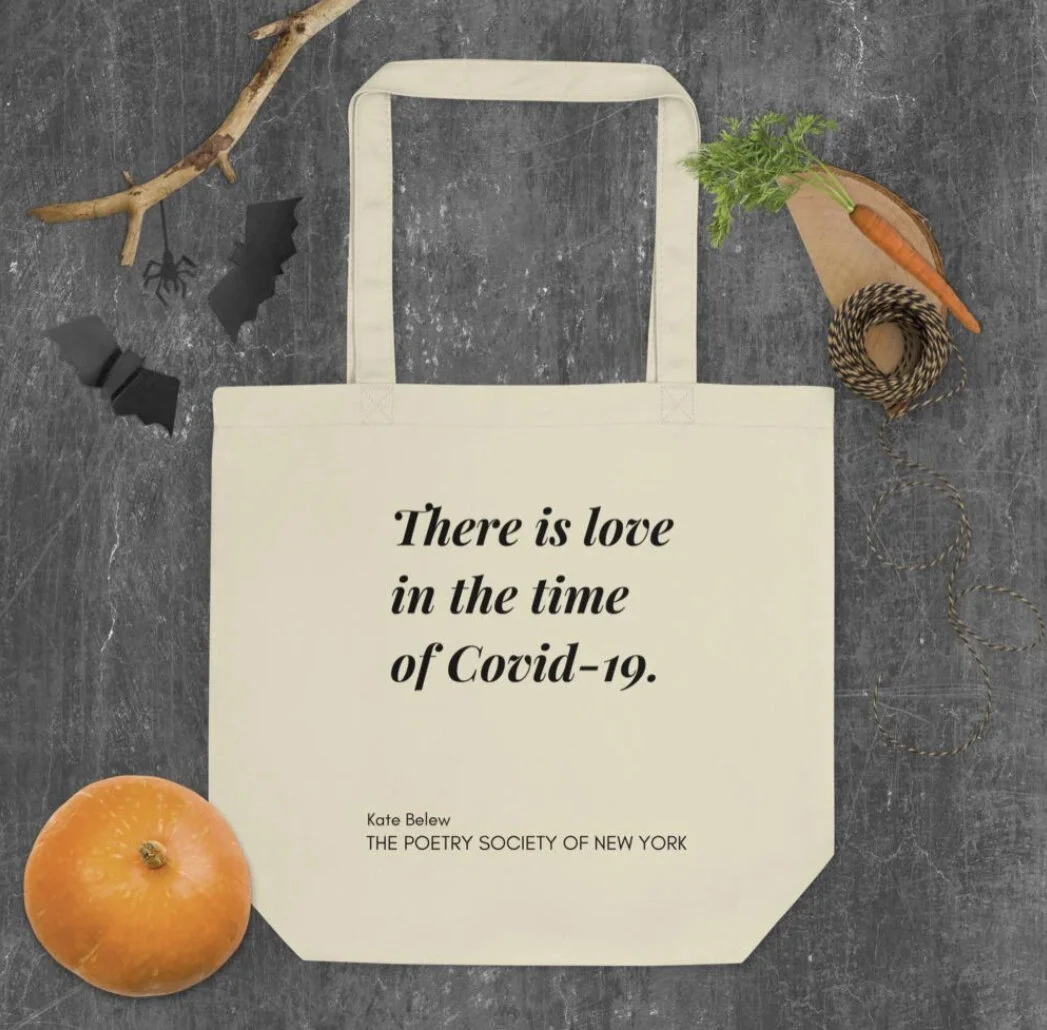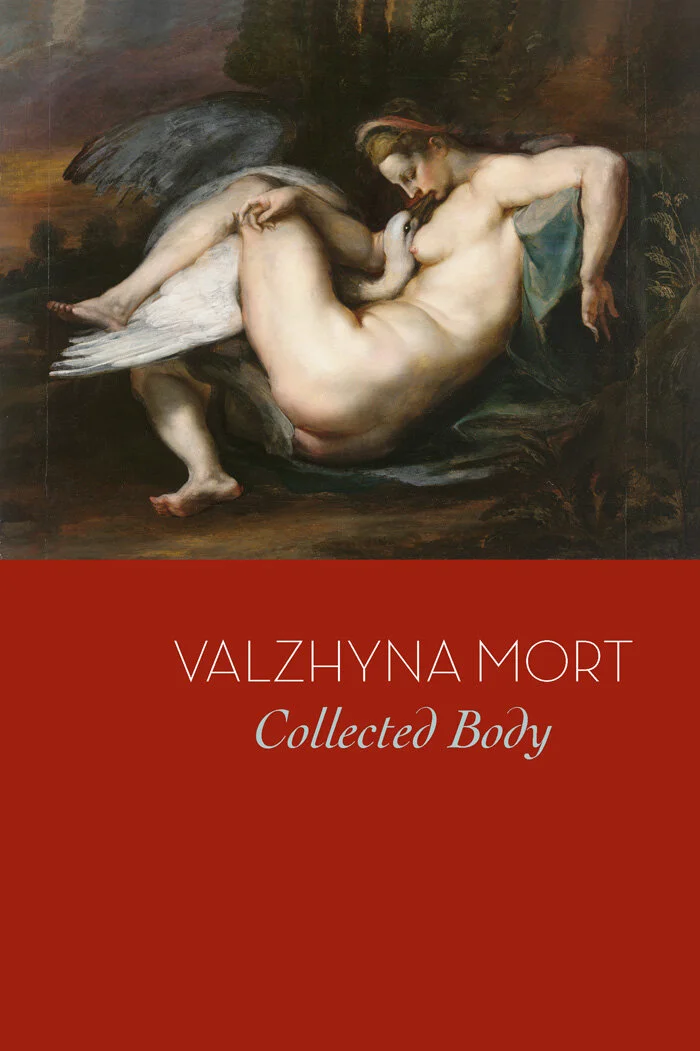
HOW TO POET
Trump's Twitter Erased!
Will Pewitt’s work in fiction, poetry, history, and philosophy has appeared in roughly two dozen publications. He has taught at a variety of institutions from the University of Arizona, where he earned his M.F.A., to the University of North Florida, where he currently teaches global literature.
by Will Pewitt
Five haikus made from erasures of supposedly “presidential” tweets.
letter for my lover on pesach
Ash Freeman is a junior at Sarah Lawrence College. They are originally from Miami, Florida but mostly write about their time spent in Michigan and the queer pastoral. They are the Editor-in-Chief of Love & Squalor. Their submission encapsulates their writing as a whole: honest, obsessed with love, and almost grotesque.
Written by Ash Freeman
I usually sugar my lips so they’re sweet for you but tonight i am coated in salt. kiss me bitter. I have never liked the taste of parsley so this year we use cilantro (it’s all we had in our fridge, anyway). when we sing i move my lips and hum because i’ve never liked the sound of my own voice and yours is so pretty it floods my throat. i want to drink it like manischewitz. let elijah in through the porch door but keep the screen door shut so the bugs don’t get in. i crush a critter with my finger as we talk about the plagues. it twitches for a moment and i try not to look at it as you pour another glass of wine for me. my family does a quick seder so together we’ve had a full bottle of cheap sangria by the time we get to eat.
(i can handle it, the first time i met your family i was so nervous i didn’t realize i was drunk till i got up to pee and almost fell over)
the truth is, i have fallen in love with prose poetry since taking a fiction class, almost like i’ve forgotten the power of a line break. but when i read you my poems you cry and i collect your tears for next year. they remind me of cilantro now (at least that’s better than parsley).
we lasted five days into passover without bread before we made sandwiches. it was just an egg smushed between two pieces of bread, if that makes it any better.
Frequently Asked Questions: A Checklist
Sharon Mesmer's most recent poetry collection, Greetings From My Girlie Leisure Place, was voted "Best of 2015" by Entropy. She's the author of several other poetry books, as well as three fiction collections including Ma Vie à Yonago, in French translation from Hachette. Four of her poems appear in Postmodern American Poetry: A Norton Anthology (second edition). Her essays have appeared in the New York Times, New York Magazine/The Cut, the Paris Review, and the American Poetry Review. Her current manuscript-in-progress, Even Living Makes Me Die, contains poems dedicated to 37 "under-known" women poets of the Americans, from Canada to Chile, from the 19th century to the present. She teaches creative writing at NYU and the New School.
Written by Sharon Mesmer
The Checklist is a form that was shared with me by poet and artist Fork Burke. She discovered it through Robert Wallace, who wrote, "In the end, the Checklist is perhaps nothing more than a vain and futile attempt to capture in writing the tiny details of one's life as they speed by too quickly and in too great a volume to ever grasp." A Checklist contains 33 items, the last of which is always “degrees.”
1. How many times this week has my morning commute, or just plain driving to the grocery store, turned into a road-rage-inducing nightmare?
2. Did a failed reporter bond to an alien entity and become one of the many symbiotes who will destroy Earth?
3. Will I ever get over “abbatoir is a grammar”?
4. Is the too-late start even a start? Even if I love unpeeled light?
5. Are all of us who haven’t slept well in years the same people that get eaten by wolves in pornos?
6. ¿Hay leche: Como puedo iniciar sesion?
7. So You Want To Make Block Patterns?
8. Brute force attack protection for the Jersey Community Meetup Flash Talk?
9. Is the smell of Sbarro slice grease and Kool-Aid coming from my hair? or the sky full-lit and full-tilt?
10. heart worms can crawl out of a dog’s nose?
11. Do you know why this street is called My Lapidary Fears Have Become Unguents?
12. Why should I unfriend her when I enjoy reporting her racist QAnon crap?
13. dmv written test practice or elvish translator?
14. If poets wrote laws and lawyers wrote an onomatopoeia of eyebrows?
15. Are aging and living mostly thermodynamic?
16. ¿Dónde? ¿Cuándo? ¿Quién? ¿Cómo? Ecstasy is some sugar daddy, si?
17. Contiguous areas of what?
18. the lizard starkly still against the boiling leaves but the devil just putzing around?
19. Artist, Anger, Abortion, America, and . . . ?
20. any old blue roving?
21. Are you finding strength in the softer vowels?
22. Is that Elton John? (No, it’s John Candy)
23. Monster buck can’t mate?
24. the vulnerability of order under afflicted stars?
25. You know what I’d really love right now? (Crackers?)
26. Ja Rule, just because?
27. So what are people? What is a fork? An ancient spoon? Are heebie geebies Jewish? What was the first hullabaloo?
28. the Doldrums or the Dardanelles?
29. Sam Sundown: to rise or to shine?
30. not the same robot?
31. there are secret notes in mezuzahs?
32. What if Peter hadn’t caught the wolf?
33. degrees
Excerpts from "I Could Never Have a Name"
Originally from Minnesota, Greer McAllister is currently earning a Bachelor of Arts with a focus in creative writing and literature at Sarah Lawrence College.
Written by Greer McAllister
(These may no longer be dreams.)
[But, before it all] it’s simple. Forsythia and chocolate tort in the morning. It’s sunny and I weep for my parents.
[Last month] I go into the bathroom and pull out my mother’s hairbrush. I’m just visiting and I forgot mine. It is packed with a thick layer of dark blonde hair I did not inherit.
[Morning] I feel bad about throwing away the newspaper today. Old world in the garbage can.
[Day] a new way of thinking: not enlightened, but peaceful. I am tucked away in the corner of my room, in the corner of my apartment, in the corner of this city, in the corner of this world, and I have, gently, overcome.
“Life won’t always be so easy.”
“I know.”
[Dusk] so we’re talking about space, space between the lines.
Once, I was a young dancer. A visiting instructor told me I say more with the space between my movements than the dance itself.
I tell him, “thank you.”
He says it wasn’t a compliment.
[Night] heavy snow today fell fast like a woman letting down her hair with frustration, or a line of identical cars speeding down the highway.
Soon, the sun sets and everything is pink, including you and me. Pink bodies on pink bodies, a few men pile them on top of each other and cart them away.
Next, I blush because you compliment my hands, the way they look like your mother’s. I hold them out so you can see them better.
Eyes blink slowly as the piano begins. I watch as you close your eyes, the music playing us out. I finally sleep and we are brought out the front door and onto the men’s cart with the others.
[Dream] making love to my ex.
[Dream] I am in a foreign country in a small city, maybe in Germany. I am with a woman and her baby girl. We are walking around the town mall and trying to think of a name for her daughter. Then, while she is paying for something, a cat, an orange cat, walks over to me. It is very sweet and has a broken leg. A few feet away, I see a man that I know and walk over to say hello. It has been a while. I tell him and the woman about the orange cat, but we all leave without helping it.
[Dream] making love to my ex, purring cats.
[Morning] a sunny morning. Scorn myself later for not appreciating it.
[Early afternoon] again, I am out walking. I reach a park that's not really a park. Wooded mudland, twisted with trash and vine-wrapped trees. I feel moved by the sun and decide to trek into the land, off the road.
Amongst the trees are large boulders, broken glass, deflated plastic, a rusted chainsaw, and a metal filing cabinet. Most surprisingly, is a small, thriving bamboo forest near the back of the park. Someone must have planted it long ago, not knowing its invasive nature or believing it could survive the New York winters.
I step down into the tall green stalks. In the center, there are seven folding chairs arranged in a circle. I can only imagine what goes on in the bamboo forest.
Passing stars overhead, dripping-green seance, seven souls among the reeds, broken beer bottles glinting pieces and pieces of their bodies, words, whispers, shouts.
Soft declarations of love.
Little youth.
Looking past the leafy canopy to heaven, clutching your coat, trudging back up, out to the
road.
[Late afternoon] the buzz of coffee, the world is bright and textured. Beauty mark on my jawline.
[Night] there is nothing I want to do more than write. My sister calls me in tears. She has just finished reading some poems I sent her.
“The birds in the last poem were the birds at grandma’s funeral.”
“Of course. There were so many that day.”
“A thousand birds along the highway.”
She says it’s like I’m writing just for her. We don’t know if others will understand.
[Night, high] broken geode, friends laughing.
Itching palms, picking agates like berries from the shore, stopping at roadside cemeteries with my father even though we have no relatives residing there.
[Late] I could tell you that I prayed to the Virgin Mary as a girl. Her blue bust reached out of the church wall during Wednesday afternoon mass, paint chipping off her milky white face.
At night, I would wish to her like a star in the sky. I could see her just past the lilacs, sitting on top of the moon, swinging her legs off the side. Her veil could reach all the way down to my backyard, the end fluttering against my bedroom window. When I opened it, I would see her wiggling her toes, could hear her laughing.
[Dream] I have the eyes of a cat. A certain man is afraid of me. Fuzzy black and white. I show him my new black dress. He is still afraid.
[Dream] the brunette girl brushing her long hair slowly. An absent look in her eye.
[Morning] soft sheets for my body, sheets gone soft from my body.
Collecting old glass bottles for the windowsill, coffee with lots of cream but no sugar.
[Afternoon] sometimes I shuffle a deck of tarot cards to keep my hands busy.
My maternal grandmother taught my sister and me to read tarot years ago. She has been reading cards for her friends since she was my age, wives attempting to read their future while mourning their youth. She sat with the two of us one afternoon. Our other grandmother, our father’s mother, had just passed away and she was in town for the funeral. She read cards for each of us, one after the other, and pulled every card about grief in the deck. We all sat there in awe.
Now, as I shuffle, a single card falls out. The Star. Harmony, hope, relief. A nude woman kneeling on the shore, holding one jar of scalding hot water and another of cold, pouring them into the sea continually. A large star hangs above her long trailing hair.
I place it back in the pile quickly and keep shuffling. Again, the same card falls out of the deck, landing on the floor. I gather it all up frantically and I pick a card from the middle– for the third time, the Star.
Again, I sit in awe, because I know it is the brunette girl from my dreams. She must live on that night-shore, kneeling in front of that water, continually.
[Evening] broken robin’s egg on the sidewalk. So small, can barely see the yolk splattered like paint.
[At night] I look at pictures from over the years. Only took pictures of myself, obsessed by my own image.
My mother never let my sister and I have mirrors in our bedrooms growing up. She read in a book somewhere that it damages young girls’ self esteem.
Some of the pictures are serious, some are childish. It is these that make me feel a certain kind of sadness. If only I could apologize.
[Memory] ground bees flying in the clover one Sunday. My parents decide we will stop attending church. I tell them I can’t abandon her.
[Dream] the smell of a person I don’t recognize.
[Dream, morning] I am in a foreign city with my father, mother, and sister. The people around us are speaking french. We are tired from walking. We rest near a cafe in the full morning sun, so bright we have to squint our eyes to see each other.
When I awake I am alone in my bedroom, far away from France or my family, but my bed is full of the same morning sunlight, so sunny I have to squint to see, to see that everything is a cream color, and full of that sadness, including my pale body.
[Noon] it must be spring now. The sun is a companion along the way, on the train, on this train.
“Where are we going?”
“Well, do you want to come with me?”
“Can I?”
“Of course. Sometimes I get sick of the sun.”
[Afternoon] a crow that sounds like a dog, like daffodils. Daffodils don’t grow where I’m from.
Moon in the blue sky. Blue sky like blue lily, like love, like licking your lips to get the last taste, like living as someone else because life hasn’t been so kind.
I could be dipped in coffee and eaten up if I wanted. I have been offered this. I told him no, not right now, maybe later.
[Late afternoon] my sister reminds me of the ancient church-house on the block we grew up on. For a long time, it had a small religious bookstore in the foyer. Its owners cooked in the old parish kitchen and slept up in the choir loft like angels.
[Dream, dusk] purple evening, and I begin to remember all the moments of my life I have forgotten.
When I was seventeen I visited Vienna. I decide now that she looked like this city, the brunette girl: plaster walls and gold trim, and when I walked through her markets and churches, there was nothing but incense and rainwater, the curve of her question-mark spine, knobby knees, asking, “Do I look okay?”
Maybe she looked like the women of Schiele and maybe not. I don’t want to tell her.
Maybe she was a dancer as a girl, like I was, comparing in the mirror our waists, our arms, the length of our hair.
Now, the white morning gives her away. Her dark down, her body-taste.
Miracle.
[Late] always looking out the window, framed by the pane. I will never be immortalized.
[Dream] something about a widow, a red-breasted robin.
[Dream, morning] when I awake, she is gone and I am alone with myself.
I think the cat is hungry for his breakfast.
[Dream, late morning] the I, the eye. The absence of music, the crab apple tree– dead cats buried underneath.
[Dream, midday] Where do you think she’s gone?
Flowers For Dinner
White Morning
Lace Lake
The Lace Lake
Morning, Mourning
The Living Living
The Day at Lace Lake
Woman in the Window
[Memory] her veil taps against the waving glass.
[Dream, afternoon] I am sure of it now. A vision of Mary, like the ones where they see her statue weeping. Chipped paint falling from the sky.
[Dream, night] I am standing somewhere high, looking at it all. I hold up a piece of blue glass to my left eye and the sun begins to rise. I walk into my parent’s house that I don’t recognize. I am only visiting.
The empty, warm winters are what I remember most. A mother’s brooch, a fistful of dandelions, a penny, a few books of a father’s, the stars washing overhead.
Would you tell her something for me?
[Dream, dream] something about absence, about incense. Something about praying.
Not Sure Where To Spend Your Summer Weekend at The New York City Poetry Festival? Let the Tarot Decide!
Not Sure Where To Spend Your Summer Weekend at the NYC PoFest? Let the Tarot Decide! | Clickbait is a blog designed to shamelessly attract attention to poetry. Using devices typically reserved for online “clickbait” like listicles, how-to’s, trending topics, SEO, hashtags, hyperlinks, hyperbole, sensationalism, puff, and fluff, the poets at The Poetry Society of New York are having a little fun.
First, pick a card:
The Sun
The happiest card in the major arcana. No other choice radiates with quite such optimism and vivacity as this one; a young child riding a white horse in the foreground shows that you long to connect to your inner spirit and reclaim the innocence and unadulterated joy of youth. Those who choose The Sun are ready to claim the fruits of their labor and align with the abundance they know awaits them. We suggest you take your love to the Youth Poetry Festival, a gem of an event sequestered in the grown-up world of the Summer Fest. Here you’ll be invigorated by your inner energy as you listen to the wisdom of toddlers, teenagers, and everyone in-between. Surrender to the cosmic zeal that awaits you, and realign your energy with youth.
The Moon
With a watery vision of a crayfish that emerges to greet a wolf and dog, the moon represents connection to intuition, dreams, and the subconscious. Its chooser might be voyaging through a time of uncertainty and illusion, and need to attune to a deep divinity or insight in order to move forward. Planting the seeds of the abundant future might require that you listen to your heart, and the underbelly of the human consciousness that runs through your veins. For you we recommend The Typewriter Project, where you’ll get to sit in a typewriter booth outfitted with a vintage typewriter and 100 feet of paper. Inspired by the idea of an Exquisite Corpse, this surrealist writing game allows several authors to contribute to the same poem, adding on ideas to create a single emotionally coherent work. Tap into the city’s subconscious and better yourself in the process.
Temperance
The balance card. An angel stands with one foot in the water and one on land, and mixes water from two chalices, forging a perfect harmony. Reader, have you mastered the art of patience? You probably have a clear vision of what you want to achieve, and strive toward inner peace and moderation. But in order to get there, you’ll need to perfect the alignment between your thinking and feeling minds. Head over to Milk Press Happenings, where you’ll see a collection of works created on-site set in chambers. Each one contains an intentional mix of poetry and visual art, as well as performance and lighting design, climate control and music, fragrances and soundscapes, all unified in their mission to awaken your aesthetic impulse. Couple the registers of your soul and you’ll surely find abundance.
The Hermit
Has isolation provided you with a new path to the mountain? You might be feeling like your lantern only illuminates the next few steps, and long for guidance after this period of introspection. You are masterful at drawing up energy from within, and now it is time to bestow that energy on the world. To find an intimate group with whom to share your wisdom, stop by the Ring of Daisies Open Mic. Stop by the sign-up early in the day, and you’ll be presented with the choice to step into the daisy circle to read a poem in radiant meditation and community with others. Or if you prefer, sit in the waving July grasses and let your fellow hermits pour their energy into your changing heart.
The Tower
Lightning strikes. You take your lover’s arm as the ground below you crumbles, and you begin to fall. Just when you felt at-ease the world slashes all promises, and now you’re chaotically scrambling to climb back up. Dear reader, do not fear: the tower is a card that promises profound enlightenment. Maybe you chose it because you have seen the cracks forming and harbor a deep wish to be spiritually shaken. Who doesn’t feel this way these days? I suggest you head over to The Poetry Brothel, an immersive literary cabaret that mixes activism, vaudeville, burlesque, magic, and mysticism. Do you secretly like it when poetry readings erupt instead of fluttering? Give in to the divine timing of the universe and open yourself up to change, body and soul.
What would a poetry vying for attention look like?
Halim Madi is a queer Arab poet. He grew up in Beirut, Lebanon, left at 17 to study in Paris and Toronto and worked in London and Sao Paulo. He now lives in San Francisco. Halim is a TED speaker, a product manager at Oculus working on the future of virtual reality, and a poet. In 2019, he asked his friends for crowdfunding support and wrote "Flight of the Jaguar". The story of what happened during these 14 years. The space between being a poet and becoming a poet. The leap of a cat. In 2020, also with friends’ support, he wrote and published "In the Name of Scandal", a collection of poems about sluthood, the immigrant identity, queerness and plants that make you see colors.
Written by Halim Madi
Exhibit 1
Listen to your heart it is whispering
the stories you’ve forgotten
to tell the child inside
Exhibit 2
Bury us
while you’re at it
Peel our nails
The skin that’s under
is a weapon a rocket a knife
pointed poignant painting your privilege
as oppression
Exhibit 3
1:15pm Santa Barbara’s lower riviera, I buy
10120.13764808 OCEAN TOKENS
This cryptocurrency my new visa
Replace my Lebanese passport with a portal
To salvation
You can be rich too
Just keep trying
Exhibit 4
Stay
strong believe
in your dreams, you are the captain
of this ship
don’t settle stay
Focused — out of many one
You you you you you
This one
too shall pass until it doesn’t
Exhibit 5
Mother,
When did you become a man
Married into a lineage of testosterone
As you grieved your husband
Grew Adam’s apple
Bit, grinned, spit sideways
Pointed at my little hands, said
Man up
Exhibit 6
I was walking up this hill and decided to sit.
I’ve been here for 3 years.
This poem about consciousness
will last a lifetime
Exhibit 7
12 13 14 Reminders:
Buy shorts, squash and a black hair tie
Write a letter to Rachel
Also, quinoa
Schedule time with Andrea
Don't self medicate
Build an altar for your father
Something is singing, maybe waiting. Are you late?
Don’t mistake silence for depth, especially in men older than you
Ask a doctor first then self medicate
Avoid carnivore flamingos, standalone devices, two-way mirrors
Don’t jaw-xercise, it hurts your ears
Forgiveness the red circus where we juggle blades
The lizard brain is my favorite
This whole age thing turns out to be real
Gratis Versus
Raised on the rural and once-rainy Oregon coast, James Joaquin Brewer now shelters in place in Connecticut while defying the uncloudy but unclear skies of gray above to spark his imagination. A recent publication about his early life in Oregon may be found at the following link: https://thewritelaunch.com/author/james-brewer/ .
“An imitative meta fiction about poetry and poets” by James Joaquin Brewer
“I’d as soon write free verse as play tennis with the net down.”
After Robert Frost picks an apple from the kitchen bowl for breakfast on the first warm morning of spring, he makes sure to tie the bright white strings of his size-nine Converse high-tops as tight as his arthritic fingers will allow. (Care of the foot is critical.) Eager for the new experience ahead, he grabs his old canvas gym bag and sneaks out the back door, apple in hand, to meet his good neighbor Jack K. on the other side of the gate for the short walk to the unfamiliar court.
Throughout the previous spring, at Jackie’s insistence–proclaimed on the first day of the new season, the idea just generated spontaneously it had seemed to Robert –they had been committed fencers. (“Oh, just another kind of outdoor game, / One on a side. It comes to little more . . . .”)
The foils were surprisingly expensive, but they had saved a considerable amount by electing not to purchase masks. “We don’t need no stinking mercy masks,” Jackie had growled at the cashier before converting his tone into a soaring laugh. “We won’t be getting that close to one another, merci-you-very-much. We’re just taking it up for the exercise–the chance to limber up and increase our flexibility. I’m not a’feared of my partner here–he’s quite . . . disciplined.” He prodded the button at the end of his shiny new toy against Robert’s chest. Robert half-smiled, took a step back, and carefully tucked the credit-card carbon into the pocket of his weather-stained windbreaker.
By the end of that rather short season of thrusting at one another under the inconsistent shade of some decrepit trees in the town park, they shared the opinion that Jackie’s prediction had been reasonably close to accurate. The few minor scratches both had received were easily treated with the contents of Jackie’s modest medicine cabinet. On each of these unfortunate–but rare and mostly peaceful–occasions, Robert would stand out in the driveway and wait for his good neighbor to return from behind his irregularly bouldered fence with a couple of drugstore bandages and a tiny vial of antiseptic lotion. By the time spring had turned to summer and the pair had decided to switch to croquet, their consensus was that when it came to fencing they were well-matched.
This year, again at Jackie’s insistence, they decide their new spring game is tennis. At his insistence also, to save on gasoline they agree to use the nearby grade-school playground basketball court–even though it lacks a net. “Who needs a net anyway,” says Jackie. “I’m too old and stiff to properly leap across one without killing myself after I beat you six-love, six-love, and six-love.”
“Maybe so,” returns Robert, “but I’ll pretend it’s there, just low to the ground, as I skip across it after smashing that last fast winner past your feeble forehand, your feeble backhand, your any kind of hand!”
“I take that as an impolite and unpoetic insult,” sends back Jackie. “Bad form, sir, bad form!”
“Well, sir,” replies Robert, “mark my words well–and yours too–after what you said about love-love-love it serves you right! Who are you to accuse me of bad form?”
“Serves me wrong, you mean,” retorts Jackie, watching Robert take an ancient-looking tennis racket from his dusty gym bag. Suddenly Jackie reaches down and snatches two tennis balls from the open bag, then straighten sup with a grin that becomes nearly a leer as he tries juggling the pair of fuzzy spheres. Robert stands scanning his good neighbor from head to toe for a moment before slowly extending an empty hand to intercept one of the balls, the other falling to the ground and dribbling away to bounce off the pipe-metal stanchion supporting an un-used, chain-netted, rust-coated basketball hoop.
“You’re out of bounds, sir,” shouts Robert. “Over the line!” Holding the head, he points the wooden handle of his racket first toward the rolling ball and then down at Jackie’s size-twelve shoes. “And according to my measures, you’re a foot-fault just waiting to happen.”
They each laugh as they stake out opposite sides of the net-less court, their vocal sounds seeming similarly erroneous and forced, each wishing silently for a return to fencing.
I just don't invite him.
Dominque Carrieri wrote the collection of poetry the before & the after to capture the shifts in life before and after the loss of a parent. The poems were compiled after the death of her father, who passed in 2016 to Pancreatic Cancer. When he passed, she recognized a shift in her writing. She no longer related to her work written prior to his death. Years later, she watched her work transform into longing to eventually a fixation with mortality. She knew this collection could not flourish without showcasing both her trauma and the bliss of life before it. So, she chose to let it exist as one stunning experience. The full manuscript has only just begun its submission process to publishers.
Excerpted from the before & the after by Dominique E. Carrieri
I stand in the center of a circle, in full view of my
peers. I pull snakes and tiny lizards from my
exposed abdomen. The sensation sparks
fluttering anxiety that morphs into confusion and
honest curiosity. I wake from the dream and cry.
The internet tells me I’m missing someone inside
me that makes me feel whole.
At this point, my partner and I have been together
for over two years. We’ve shared two homes, one
dog, and own a printer, so I’d call that a pretty
serious relationship.
He is a large, bearded, cis man with teddy bear
eyes that make you wanna say, “hi.” Standing
beside him presents me with a privilege I’ve never
felt, to be catapulted to a world that perceives me
as an insanely helpless heterosexual being.
I’ve always kept my identity safe in sacred places
and sometimes it speaks so loud I imagine its
voice could blow a train across the country.
Sometimes, it puts lizards in my stomach.
Other times, it is quiet and hides in the tiny
wooden drawers of my grandmother’s jewelry
box, waiting for dark filled silence to gently lower
the rowboat, sailing tirelessly back to the queer
world I call home.
I’ve always been a bit of a wild card. I love to lick
the spoon in front of people who have opinions on
loud chewing or messy eating.
I love assembling hurdles in front of those who
challenge things they cannot change almost for
sport, but this world is exhausting.
In this world, I cannot be many, only one.
My ravenous queerness challenging norms and
social paradigms can be seen as threatening and
sometimes even dangerous.
My lack of feminine nature results in the
misconception that we aren’t a couple at all and
we take front row seats to each other’s
discomfort, while we dodge the advances of
unknown, interested strangers.
I bring to the table some of my darkest memories
in my partner’s most comfortable environments.
The more my queerness bleeds onto my clothing,
my speech, my car, my hair, the more this new
world tells me:
“This isn’t what a heterosexual couple looks like.
This isn’t even what a queer couple looks like.”
But what if it is?
If my love is to exist, he loves me because I am
queer. His response to my identity informs his.
We stand beside each other and our identities
remain tragically different, but isn’t that true for all
people?
In order to be together, we must also know how to
be apart. To operate on the most opposite of
hemispheres, to live even if it means accepting
each table isn’t a party of two.
You won’t notice my partner in attendance at most
queer gatherings. This is not because he doesn’t
want to be there.
To be honest, I just don’t invite him.
To Remember You in a Smile
Yasin Ertas is a second-year MFA student at The New School, Creative Writing/Poetry. Yasin has been living in NYC for 6 years, and previously studied International Trade in Turkey, Hungary, and Belgium with the Erasmus Program, as well as published a book in Turkey. Yasin’s articles appear in well-known newspapers Milliyet and Radika (one of them is banned because of Yasin’s political beliefs); Yasin’s poems appear in famous magazines Dil ve Edebiyat, KafkaOkur, Ot Dergisi, Kirpi Edebiyat in Turkey.
Written by Yasin Ertas
to remember you in a smile. my dear I don't have one. but you're in my
mind. it's a spiritual thing. no it's more. it doesn't have a past. doesn't have
a future. there is no where where it begins. nowhere where it ends. it’s just
a repetition. a repetition in the repetition. the creativity of the repetition that
comes out from the shell of the repetition. say if I am a gramophone and my
mind is a record that is filled up with you my dear. filled up with you. in my
mind you are playing. I hear. do you. do you my dear. you are the only and
most beautiful piece that is playing there. there is my mind that is you. you
are playing there. rotating. twisting. dancing. dressing undressing. it’s
playing 24 hours without stopping. don’t you think that makes me the
hardest worker in the world. you are. you are playing in my mind. this is
your music. your lyrics. you grow up in my mind. keep growing. transform
everything. destroy the distances destroy the time. ruin the language. I kiss
the eyes of your lyrics.
to remember you in a smile. my dear I don’t have one. instead of
remembering you in a smile to remember you in an orange light at midnight.
how nice your face would be seen. your nose. your neck. no one can
describe them better than me. to remember you in a wine glass that perfectly
resembles your body. to remember you when I even look at the curves of a
3. to remember you when a train delays. when a hand opens a mailbox. one
gets a hair cut. learns spanish. when snow melts. when a flower blooms or
fades.
when I have only 13 dollars in my bank account and in my pocket many
quarters I go to a deli and make these quarters singles then deposit the
money into my account so I withdraw twenty bucks and go back to the deli
and buy twelve bottles of beer. to remember you my dear to remember you
in what I wrote in brussels in ’14
the most beautiful wind is
neither on gentle leaves
nor on any nation’s flag
but when a woman releases her hair
you are that woman I desire. to remember you in what I didn’t write. in what
I will write on saturday. may 1 2021. to remember you in remembering you
is to remember you.
each time when i hear my name. that’s not happening a lot. getting even
less. but again you are there. you are my loneliness always with me. no. you
are not. because once I tried to leave my loneliness at grand central train
station to be more lonely. do you believe that. but I cannot leave you. you
are everywhere. you are a dress. first a mom whom i’ve never seen wear
that dress now her daughter marie wears it.
you are on the streets when elderly people who look like bread crumbs left
on the table in the 1950’s 40’s make their turns unnecessarily safely like a
long vehicle although their deaths won’t come from a car accident or from
a street fight or I don’t know how because they passed that exam a long time
ago. a long time ago. a long time ago. each of them has ten twenty even
some have forty different long time agos when I talk to them. you are also
in each of these long time agos. it’s hot it’s cold you are there too. as I do
jaywalk I first look at the left of me then to the right then cross the street.
you are first on the left then on the right and later you appear in front of me.
a few weeks ago I wrote my shortest poem called I, Myself
to think of you I go to new jersey
february 4 2020
new york
you were there. but you were not only in the words. because you were also
all over the empty spaces on the page that I left deliberately. you should’ve
seen yourself. you should’ve seen yourself my dear. how you became
crowded. As if the echo of your body appears everywhere. does a body have
an echo on the empty page. yours does. can an echo be seen. yours can. no
one saw you but I. to remember you on an empty page.
if I live because of you. because of where you are. my dear I haven’t found
you yet. but I know you are somewhere. somewhere I don’t know.
somewhere who knows where.
Rembrandt's Eyes
Grace Maselli studied in New York City at the Writers Studio founded by American poet and author, Philip Schultz. Her work has appeared in Cleaver Magazine, Poydras Review, Streetlight Magazine and The Penmen Review. Her poem, “Queen of African Violets,” was the 2019 first-place winner in the Jacaranda Poetry Contest sponsored by the Pasco Fine Arts Council and the Cannon Memorial Library at Saint Leo University, St. Leo, FL. Grace lives in the Tampa Bay Area with Sophia, Jackson, Francis, Olive, and Lexilu. Her poem, “What the Hair is Going On?” was published as a mini chapbook by Phfours Press, Ottowa, Canada.
Written by Grace Maselli
To forget his eyes is
to unsee
cardinals in sudden
drops
the falling knives from fixed
points to a failing
branch or
from the sky
flying left
to right across chartreuse,
a color made by Grenoble monks
of France
The chiaroscuro of sadness
and change:
It will never be
the same
broken set of rules,
though memory will
apportion itself for dramatic effect
A masterwork
of darkness left,
and a fixation on
light that gets through
to something unable
to reverse itself no matter what
in the slight
of regrets
in the etching
of weightless fingers
left with nothing more to do
than sway
above a delicacy of
fading bones
10 Cats We Think Host the Reincarnated Souls of Dead Poets
Yes, this is what we think about in our free time. Haven’t you ever been a little curious? Here are 10 cats we think host the dead souls of reincarnated poets.
Yes, this is what we think about in our free time. Haven’t you ever been a little curious? Here are 10 cats we think host the dead souls of reincarnated poets.

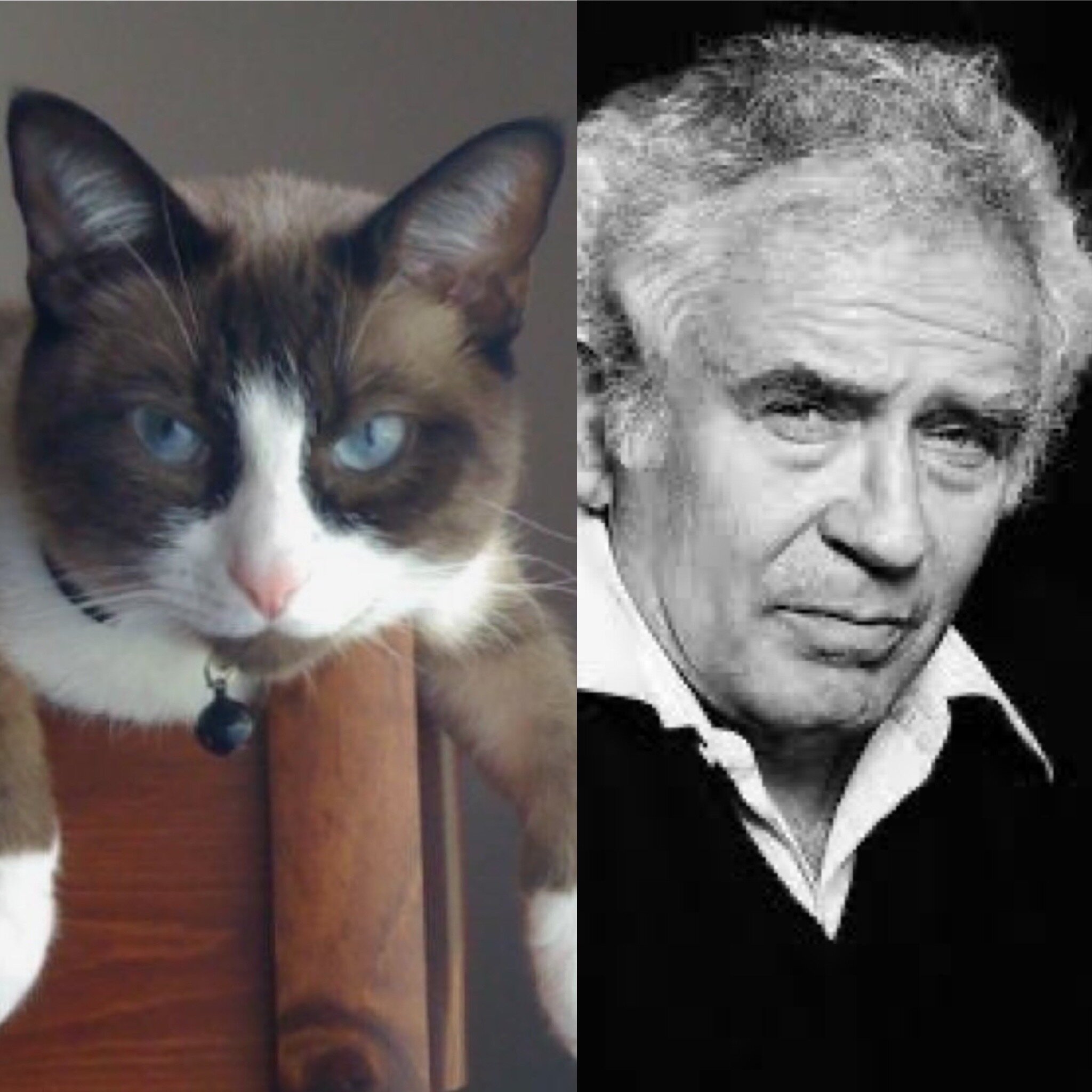








lack of translation
Kayan Tara is an Indian poet and author living in the United States. Kayan’s work touches on the struggles and contradictions of growing up in Mumbai, India, as well as its political and social landscape. During this turbulent time in the United States, Kayan has written about the realization that even in times of division we have more in common than apart.
Written by Kayan Tara
you reply in english
at 9 years old when
your grandmother
holds out shrivelled hands
to bless you in tunes of
an ancient religion
you cannot fully claim
at 13 years old
you notice skin
not white enough
not even dark brown
like your supposed
desi brothers and sisters
you dream in red,
white and blue
at 16 years old
wanting green eyes,
and long blonde hair
when you go home
at 19 years old
they tell you your
tongue does not bend
right to speak the phrases
of your ancestors
so at 22 years old
you lay among
peach sheets
with a white woman
terrified you reek
in layers of betrayal
Top Ten Taylor Swift Lyrics that Should Put Her in the Running for U.S. Poet Laureate
We over here at The Poetry Society of New York love Taylor Swift. I mean, who doesn’t cry when folklore comes on? So here we present to you, our dear reader, the top ten Taylor Swift Lyrics that could hypothetically(!) put her in the running for U.S. Poet Laureate. (We’re only half kidding.)
We over here at The Poetry Society of New York love Taylor Swift. I mean, who doesn’t cry when folklore comes on? So here we present to you, our dear reader, the top ten Taylor Swift Lyrics that could hypothetically(!) put her in the running for U.S. Poet Laureate. (We’re only half kidding.)
“Your Midas touch on the Chevy door/November flush and your flannel cure/‘This dorm was once a madhouse’/I made a joke, ‘Well, it’s made for me’.”
“But we might just get away with it/Religion’s in your lips/Even if it’s a false god/We’d still worship/We might just get away with it/The altar is my hips/Even if it’s a false god/We’d still worship this love.”
“The drought was the very worst/When the flowers that we’d grown together died of thirst/It was months and months of back and forth/You’re still all over me/Like a wine-stained dress I can’t wear anymore.”
“Take the words for what they are/A dwindling, mercurial high/A drug that only worked/The first few hundred times/And that’s the thing about illicit affairs/And clandestine meetings and stolen stares/They show their truth one single time/But they lie and they lie and they lie/A million little times.”
“Echoes of your name inside my mind/Halo hiding my obsession/I once was poison ivy, but now I’m your daisy.”
“It’s the kind of cold, fogs up windshield glass/But I felt it when I passed you/There’s an ache in you, put there by the ache in me.”
“Please picture me in the weeds/Before I learned civility/I used to scream ferociously/Any time I wanted.”
“Now I’m searching for signs in a haunted club/Our songs, our films, united we stand/Our country, guess it was a lawless land/Quiet my fears with the touch of your hand/Paper cut stings from our paper-thin plans/My time, my wine, my spirit, my trust.”
“Maybe we got lost in translation/Maybe I asked for too much/But maybe this thing was a masterpiece/’Til you tore it all up/Running scared, I was there, I remember it all too well/And you call me up again just to break me like a promise/So casually cruel in the name of being honest/I’m a crumpled up piece of paper lying here.”
“What must it be like to grow up that beautiful?/With your hair falling into place like dominoes/My mind turns your life into folklore/I can’t dare to dream about you anymore.”
Painted Flowers
Mollie Gordon (she/her/hers) is a queer writer, educator, and theatre-maker based in Brooklyn, NY. Her prose and poetry have been published by Multiplicity Magazine and Love & Squalor, and her plays have been produced by The Bechdel Group and Sarah Lawrence College. She uses her writing to freely explore gender and the natural world, while also analyzing and reimagining the classics. She will graduate next year with a B.A. from Sarah Lawrence.
Excerpted from Moments in Nature Chronicled by a Convalescing Brooklynite by Mollie Gordon
There have been two gardens (thus far) in my life. One is in Brooklyn only five minutes away from where I am now (in quarantine with my parents); it is my godmother Linda’s garden. Linda is an expressionist painter and a gifted gardener. I often wonder if those talents are linked somehow, if she learned to grow flowers by painting them first. I can neither paint nor garden, but sometimes in the summers I used to come over and tend to Linda’s garden while she, Ethan (my godfather), and Cora (my godsister) vacationed in Florida. This task terrified me; I worried that Linda would return home to find the only living flowers in her house to be those in her paintings.
Linda paints primarily still life pictures -- of the boardwalks at Coney Island, or her flowers (usually orchids), or her dead son. The last summer I tended the garden, Linda was growing only one orchid and it was kept apart from the rest of her plants, sequestered in a small clay pot in her dead son’s room. When Linda paints orchids she paints them leaning towards each other as if engaged in private conversation. They are distinctly feminine, with titles like “gossiping old maids” or “conferring ballerinas,” but Linda’s living orchid lives alone, a ghost in a ghostly room. About a week ago I investigated the symbolism of orchids (as I thought about her) -- they stand for both femininity/fertility and death. A haunting combination.
In Linda’s instructions she always asked that I watered the orchid first. I appreciated her specificity, I myself did not know where to begin. How do you garden when the garden isn’t yours? For both Derek Jarman and Mary Sarton, gardening was a desirable solitude, a personal Eden. They went to their gardens for peace from the pangs of heartbreak, the pressures of artmaking, their insidious demons. But when I walked the few blocks to Linda’s apartment (which she’d been renting temporarily for twenty years now), I never felt fully at ease. I spent several minutes just wrestling with the front door, then I would fill the watering can in the sink, the water reverberating against the peeling tin like the ringing of chimes. Then to the shadowy orchid, then to the cactus she kept for herself in her bedroom. The indigenous people that Linda rents her apartment from believed that cacti represented the unconditionality of a mother’s love (I think she is proof of this) and I am careful with the cactus.
After, I would leave the door unlocked and go outside to water the exterior plants, where Cora’s butchered Barbie dolls usurped the places of the more traditional garden gnome. To reach these elusive flowers (asters and irises, protected and exhibited by a fence like Juliet by her balcony) I had to maneuver the watering can through a gap in the fence and shake it aimlessly. The result looked like the sprinklers Linda’s son and I used to run through together in sweat-soaked bathing suits at Van Voorhees park down by the highway.
When I felt that I’d approximated the rain, I would go back inside and dump any remaining water in the sink. Then I would lock up and walk home. I never turned the lights off because I never turned them on. I felt a little like a burglar, and based on how long it took me to get the door to open and close, Linda’s neighbors probably thought I was one. Or maybe they just didn’t worry about it, knowing Linda. Her doors are open to everyone.
Hey, Linda? Don’t tell Aunt Julie this but your garden is my favorite. That other garden (Aunt Julie’s) is located in Washington D.C., and Julie is incredibly possessive of it. She does not share her gardening duties with anyone, therefore my job was not to water the plants but to chase the rabbits away. Julie and the rabbits had been at war ever since they had eaten through half of her cucumber plants, ruining a perfectly planned summer salad. Julie appointed me her general, renowned as I was for tearing up gardens rather than growing them, an upset to my feminine ancestors.
It does not escape me that only the women in my life have been particularly inclined to garden. I don’t know what this says about us. Is it because we as women have been conditioned to nurture, to tend, to preserve? Or is it that ever since Eve got us kicked out of the garden we’ve been fighting to get it back? Whatever the case, I do not (nor I never have) fit that mold of womanhood. I used to dig up grubs in the yard behind my preschool, and my mud-drenched dresses earned me infamy as a not very good little lady.
But maybe Linda just doesn’t see me that way (I can’t be sure). What I know is that she trusts me to water her orchid just enough, to help her bake sugar cookies that vanish as soon as they emerge from the oven, to keep an eye out for bats as we walk by the pier at sunset, to hand out the goodie bags at her son’s birthday parties and (now) to watch over her daughter. While Linda labors in the kitchen to produce the perfect butternut squash casserole, I lead Cora through endless games of hide-and-go-seek. The little girl is as wild as I was, but Linda doesn’t seem to mind. She is too busy cooking with the fruits of her garden, striving to squeeze as much life out of those plants as she can.
Linda invited Ellis over the first time she met them. We stopped outside her door on a tour of my neighborhood, the exertion making me lean forward on my crutches like the drooping head of her orchid. At the first ring of the bell the door swung wide open and she said, “Come in, come in!” face flushed with excitement at a chance to play the host. Ten minutes in and she’d already invited Ellis to dinner, featuring her homemade mushroom moussaka. Her shoulders sagged a little when I admitted that we already had plans for the evening, but we agreed on a rain check. I am still waiting for the day (post-pandemic) when I can make good on that promise, when I can usher my beloved into the warmth of your garden and your home.
Clickbait Review: Joshua Beckman's "Animal Days" + The Thud Thud Thud Resounding
How fragile is the word “human”? In Joshua Beckman’s new collection, Animal Days , it appears more vulnerable than we would like to admit. Animal Days, published this year by Wave Books, breaks down the syntax through which we compose ourselves as creatures set apart. Branching distinctions, recited by habit, between subject and object, human and inhuman, are all scraped and shorn away from the text, allowing us to reach into the darkness beneath words and encounter a strangeness buried deep in our bodies. Porous, silent, damp—a movement barely sensed: the parts of life from which we’d normally recoil enter our awareness, like the pulse rushing in our wrist—a foreign feeling, always present, but suddenly recognized. Winding along the roots of our grammar like a speckled rot, Beckman’s poems moisten and decay our assumptions, revealing what we are when we are no longer ourselves.
Joshua Beckman is a poet, translator and editor. He is the author of a number of books, most recently Animal Days (Wave Books, 2021).
“Lost in the flux of sensation, we discover, in pain’s heat, that the body is more than we thought, more than we can say.”
Written by Nate Rosenfield
How fragile is the word “human”? In Joshua Beckman’s new collection, Animal Days , it appears more vulnerable than we would like to admit. Animal Days, published this year by Wave Books, breaks down the syntax through which we compose ourselves as creatures set apart. Branching distinctions, recited by habit, between subject and object, human and inhuman, are all scraped and shorn away from the text, allowing us to reach into the darkness beneath words and encounter a strangeness buried deep in our bodies. Porous, silent, damp—a movement barely sensed: the parts of life from which we’d normally recoil enter our awareness, like the pulse rushing in our wrist—a foreign feeling, always present, but suddenly recognized. Winding along the roots of our grammar like a speckled rot, Beckman’s poems moisten and decay our assumptions, revealing what we are when we are no longer ourselves.
“It Seemed Too Much,” the first of the collection’s five parts, depicts the language we struggle to form when we attempt to describe our pain. Broken lines stumble along the page like the phrases we find emerging from our mouths when a doctor asks us what seems to be the problem. A pulling, a spasming, something tight—we point and grope like children for the simplest words, as pain radiates awareness through parts of ourselves we normally can’t sense (a tendon slipping around bone or an aching muscle torn and taut). The body itself feels suddenly unfamiliar, as if it were something separate from us, outside of our control. From the first pages of Animal Days, we’re gripped by the spasm of the unknown movements within us: “it seemed / too much / —the / clacking + / griping, the going / back + forth / it’s not him / nor is it anything / else—”... “the pursing / and bursting / of cells / blood / in the skin / in the face / blood exploding / inside us / like that” (3) … “curt stones / stomach pain / body pain—cell / + task” (4). The subject of Beckman’s lines has vanished. Verbs are nouns. All there is, and all we are, is movement—a sensing, a coursing, a straining. A terror rushes through these lines infused simultaneously with a strange sense of release. Lost in the flux of sensation, we discover, in pain’s heat, that the body is more than we thought, more than we can say.
Possibilities emerge as Beckman’s syntax blurs the distinction between ourselves and the movements within us. If a tremor in the muscle is in fact our life, then what of the breeze grazing against the skin? In Animal Days, the line we draw between ourselves and the world begins to ripple, as our awareness grows of the movements within and beyond our bodies, like in the following lines: “Dog / children / splashing the air / in their mouths / spitting grotesque sounds” (5). This image of fitful play transforms language itself into merely a movement of particles in the mouth. The feeling of the air as it carries the voice becomes our way of sensing the world, rather than knowing it; words are just part of what flies out of us with the spittle. Beckman makes our relationship with language physical to allow us to see the cries of children and dogs mingle in the breeze. This is no metaphoric fantasy of a communion with nature. It’s an encounter with the boundary where the inhuman, the vulgar, the “grotesque,” rub against us. We resist crossing this boundary by instinct, recoiling in disgust without a thought. Dirt is dirty. Spit is filth. What more is there to say? Animal Days reveals how our humanity is fabricated through these instinctive forms of avoidance. It shows us that flowing beyond the boundaries of the human there is a power we cannot control or resist, which must simply be ignored; to do otherwise would mean to destroy the illusions that preserve us, to go against our nature.
Beckman allows inhuman perceptions to seize hold of the innermost parts of his being—his body, and even the poetry he has given his life to produce. He compares his desire for song to a bird’s, and allows this metaphoric merging to erode the distance between himself and the creature he observes: “The bird’s whoo / on its pallet / of rock / ended / I too am singing / awkwardly to myself / is it fear? / they are always saying it is fear / but I suspect a kind of / dumbness lapping and growling / insensitively within me / caused it first myself / then now responding to / its empty echo / I carry on with a thud / a thud thud / a thud thud thud / a thud thud thud / a thud thud thud” (85-86). As the image unfolds, beauty is washed away from speech. A name or reason for song has been pulled into the current. Purpose becomes urge, word becomes sound, as the rushing movement of life strips away the constant swarm of thoughts that protect our humanity from the sheer, irreducible flow of now. Human song becomes another sound in the air, a “thud thud thud” resounding to resound, like a heart, pulsing to pulse. When we allow ourselves to see the world with inhuman eyes, our justifications crumble like mud as it dries, and the shape of our lives begins to change: “A radiant glimmer / I once saw in eye / I once felt in tongue / how stupid wet and soft / they’re seeming now / candid is the flesh / and strange the jaw / its masticating of everything / how silly its vigilance seems / as the beetle crossses / back and forth” (91).
After Animal Days peels back the boundaries that define the human, it probes beneath them, searching painfully for a cause. The second part of the collection, “Little Prickly Coming of Storm” opens with an elegantly drawn image of an egret feeding: “as it pokes / into the fleshy / fish with its / beak and has it / speared there / then / throws back / its head / so the creature / goes perfectly / vertically up / and in a straight line / comes all the way / back down / right into / its mouth” (11-12). A group of hikers walks “through the bushes / wearing hats'' gathering to watch this strange sight, when a thought passes over the crowd: “but just consider / the living creature / who does something / like that / the terrible / crushing of bones / and eating” (12). Beckman reveals a latent instinct beneath this commonplace reaction by comparing the egret’s feasting to a childhood memory of a fishing trip, in which the poet suddenly finds himself to be the one removing a fish from water and mangling its flesh: “I, myself / earliest / and first / displaces into a / satchel-shaped / silhouette / or two fish / bumping chest— / and everyone thought, / smiling / Second / same thing / and so on / weightless / obliviation / of it never / ending” (13). The subject “I” is cut away from the verb “displaces” by its improper conjugation. An unseen “he” is falsely implied, who we are forced to imagine carrying out the act (for “I” could never do such a thing). The grammatical incoherence of the lines bears the mark of an experience torn violently away from memory through denial. Even the verb choice obscures the true relationship between the subject and the real action taking place. What is ‘displaced’ here and what does it mean to ‘displace’ it? The verb itself, muffled and squirming, silently prods at what is truly going on. These ‘errors’ are meant to keep the killing quiet, tossed quickly out of sight like the body of the fish thrown into the “satchel-shaped silhouette.” The only clear image is the “bumping chest”—movement which seems to have been too shocking to forget—and the presence of the “smiling” others, whose willful obviousness seems to enforce the all too human need to abandon to “weightless obliviation” the thought wedged in this intimate act of crushing and chewing and swallowing. A kernel of it stabs at us constantly, despite our endless attempts to ignore it. In this image, Beckman illustrates that our humanity is formed through our endless struggle to resist an essential foundation of all life: that we are sustained by the deaths of others, and that to live means to partake in the same gnawing movement that will destroy us. Animal Days shows us that our elaborate linguistic acts of self preservation will always fail to protect us from this inevitable truth. Like a hard seed-casing meant to break into the soil, our human life might seem to be the world that holds us, but it too will someday crack and fall away.
Joshua Beckman has crafted a poetics to uproot deceptions deeply embedded in our concept of the human. Covid-19 and the global threat of climate change have forced us to encounter how dangerous these deceptions have become. The integrity of the self and the body, the distinction between the human and the inhuman, and the separation of life and death have been pressed to a breaking point. Animal Days shows us what it’s like when these assumptions snap, and new forms of understanding are allowed to take root. All of us are now involved in the task of nurturing cultures capable of sustaining life on earth. The most basic parts of daily experience, from walking past a stranger on the street to ordering a meal at a restaurant, now require us to reimagine our connections to the life forms circulating all around us. It’s an overwhelming task often fraught with confusion and paranoia, and it’s difficult for the poets guiding our language through such a crisis to avoid the rationalizations most of us can’t help but indulge in despair. Irony, hyperbole, fantasy and nihilism are not hard to come by when browsing the shelves for new collections.
Joshua Beckman’s Animal Days provides a powerful example of how poetry can help us re-envision our relationship to the world amid disruption and catastrophe. Rather than elaborating on our inability to even recognize the world beyond the human, Beckman plunges into the darkness within our bodies to rediscover the intimacy of the life we’ve alienated. Animal Days challenges the notion that language is what separates humanity from other forms of life. By spawning a new kind of grammatical tissue, Beckman’s collection scabs over and rejoins the vital growth we’ve torn away from ourselves. With all the pus and pain and swelling of a creature in the process of its remaking, this book will heal you if you give it time to grow.
The Many Facades of Love: A Handpicked Collection of Love Poems
What is Love? Poets try to answer the question with one love poem and announce their “failure” by writing another after another… Our history is full of love poems, and yet our urge is still to sing about love, and to untangle the very idea of love.
Written by Yunqin Wang
What is Love? Poets try to answer the question with one love poem and announce their “failure” by writing another after another… Our history is full of love poems, and yet our urge is still to sing about love, and to untangle the very idea of love.
On this first Valentine’s day in the time of a pandemic, we selected for you a series of love poems to relish in your bed, dining table, metro station... Some are romantic, some bitter, some mysterious, some lonely. O, how love has so many sounds, and so many shapes.
[love is more thicker than forget], by E.E. Cummings
In this bizarre little poem, love is compared to a hundred things, and yet the comparisons only reveal the impossibility to actually describe love… Written in a strict quatrain, the poem seeks to give a neat answer to love’s puzzle, but only inevitably comes out as another mystery.
love is more thicker than forget
more thinner than recall
more seldom than a wave is wet
more frequent than to fail
it is most mad and moonly
and less it shall unbe
than all the sea which only
is deeper than the sea
love is less always than to win
less never than alive
less bigger than the least begin
less littler than forgive
it is most sane and sunly
and more it cannot die
than all the sky which only
is higher than the sky
Corona, by Paul Celan
Ingeborg Bachmann wrote in a letter to Celan that, “I have often reflected that ‘Corona’ is your most beautiful poem; it is the complete anticipation of a moment in which everything turns to marble, and remains forever.” One of my all time favorites, ‘Corona’, a postwar love poem, truly has the magic to make readers see a new world springing out of a pair of embracing lovers.
Autumn nibbles its leaf from my hand.
We are friends.
We shell time from the nuts and teach them to walk.
Time returns into its shell.
In the mirror is Sunday.
In dreams come sleeping–
the mouth speaks true.
My eye moves down to my lover’s loins.
We gaze at each other and we speak dark things.
We love one another like poppy, like memory
we slumber like wine in the sea shells
like the sea in the moon’s blood jet.
One heart beat for unrest.
We stand at the window embracing.
People watch us from the street.
It is time people knew. It is time
the stone consented to bloom.
It is time it came time.
It is time.
The Privilege of Being, by Robert Hass
In ‘Corona’, the love between the embracing lovers is eternalized through the eyes of people watching them from outside the window. In this gorgeous poem by Robert Hass, it’s the angels who are watching the lovers. With this geometry formed among the “illiterate angels”, the man and the woman, Hass contemplates the idea of love, desire and union.
Many are making love. Up above, the angels
in the unshaken ether and crystal
of human longing
are braiding one another’s hair, which is
strawberry blond
and the texture of cold rivers. They glance
down from time to time at the awkward ecstasy--
it must look to them like featherless birds
splashing in the spring puddle of a bed--
and then one woman, she is about to come,
peels back the man’s shut eyelids and says,
look at me, and he does. Or is it the man
tugging the curtain rope in that dark theater?
Anyway, they do, they look at each other;
two beings with evolved eyes, rapacious,
startled, connected at the belly
in an unbelievably sweet
lubricious glue, stare at each other,
and the angels are desolate. They hate it. They
shudder pathetically
like lithographs of Victorian beggars
with perfect features and alabaster
skin hawking rags
in the lewd alleys of the novel.
All of creation is offended by this distress.
It is like the keening sound
the moon makes sometimes,
rising. The lovers especially cannot bear it,
it fills them with unspeakable sadness, so that
they close their eyes again and hold
each other, each
feeling the mortal singularity of the body
they have enchanted out of death
for an hour or so,
and one day, running at sunset, the woman
says to the man,
I woke up feeling so sad this morning
because I realized
that you could not, as much as I love you,
dear heart, cure my loneliness,
wherewith she touched his cheek to reassure him
that she did not mean to hurt him with this truth.
And the man is not hurt exactly,
he understands that life has limits, that people
die young, fail at love,
fail of their ambitions. He runs beside
her, he thinks
of the sadness they have gasped and crooned
their way out of
coming, clutching each other with old, invented
forms of grace and clumsy gratitude, ready
to be alone again, or dissatisfied, or merely
companionable like the couples
on the summer beach
reading magazine articles about intimacy
between the sexes
to themselves, and to each other,
and to the immense, illiterate, consoling angels.
Summer, by Louise Glück
There are countless of beautiful love poems by Glück. Some of my favorites include ‘Eros’, ‘From a Journal’, ‘Moonbeam’, ‘The Balcony’… But here, I’m introducing ‘Summer’ to be read side by side with Hass’ poem above. In ‘Summer’, we will drift along with the poet into a cycle of love. From the stage of passion to the later days of companionship, this journey, soothes and glows.
Remember the days of our first happiness,
how strong we were, how dazed by passion,
lying all day, then all night in the narrow bed,
sleeping there, eating there too: it was summer,
it seemed everything had ripened
at once. And so hot we lay completely uncovered.
Sometimes the wind rose; a willow brushed the window.
But we were lost in a way, didn't you feel that?
The bed was like a raft; I felt us drifting
far from our natures, toward a place where we'd discover nothing.
First the sun, then the moon, in fragments,
stone through the willow.
Things anyone could see.
Then the circles closed. Slowly the nights grew cool;
the pendant leaves of the willow
yellowed and fell. And in each of us began
a deep isolation, though we never spoke of this,
of the absence of regret.
We were artists again, my husband.
We could resume the journey.
Claustrophilia, by Alice Fulton
Alice Fulton talks about love in a different tone. Written in a voice at times ironic and humorous, Claustrophilia juxtaposes everyday love with specialized terms such as “moxibustion”, “analgesia”, evoking the question of proximity and closeness in love relationships. How close can we get? How far can we be?
It's just me throwing myself at you,
romance as usual, us times us,
not lust but moxibustion,
a substance burning close
to the body as possible
without risk of immolation.
Nearness without contact
causes numbness. Analgesia.
Pins and needles. As the snugness
of the surgeon's glove causes hand fatigue.
At least this procedure
requires no swag or goody bags,
stuff bestowed upon the stars
at their luxe functions.
There's no dress code,
though leg irons
are always appropriate.
And if anyone says what the hell
are you wearing in Esperanto
—Kion diable vi portas?—
tell them anguish
is the universal language.
Stars turn to trainwrecks
and my heart goes out
admirers gush. Ground to a velvet!
But never mind the downside,
mon semblable, mon crush.
Love is just the retaliation of light.
It is so profligate, you know,
so rich with rush.
If you like Fulton’s work, here is another short poem called ‘Yours & mine’ which appeared in her first collection. It indeed captures one kind of distance between lovers, created by their different ways of loving, different ways looking after each other.
Yours & mine
Through your lens the sequoia swallowed me
like a dryad. The camera flashed & forgot.
I, on the other hand, must practice my absent-
mindedness, memory being awkward as a touch
that goes unloved. Lately your eyes have shut
down to a shade more durable than skin’s. I know you
love distance, how it smooths. You choose an aerial view,
the city angled to abstraction, while I go for the close
exposures: poorly-mounted countenances along Broadway,
the pigweed cracking each hardscrabble backlot.
It’s a matter of perspective: yours is to love me
from a block away & mine is to praise the grain-
iness that weaves expressively: your face.
New York Address, by Linda Gregg
If you are alone, or if you are walking in the New York sunset, or if your love is yet on the other side, I have this cup of Linda Gregg for you.
The sun had just gone out
and I was walking three miles to get home.
I wanted to die.
I couldn't think of words and I had no future
and I was coming down hard on everything.
My walk was terrible.
I didn't seem to have a heart at all
and my whole past seemed filled up.
So I started answering all the questions
regardless of consequence:
Yes I hate dark. No I love light. Yes I won't speak.
No I will write. Yes I will breed. No I won't love.
Yes I will bless. No I won't close. Yes I won't give.
Love is on the other side of the lake.
It is painful because the dark makes you hear
the water more. I accept all that.
And that we are not allowed romance but only its distance.
Having finished with it all, now I am not listening.
I wait for the silence to resume.
I cannot live with you, by Emily Dickinson
I would like to end this love journey on a classic note with Dickinson’s I cannot live with you. In only a span of a poem, we traversed with the poet through life, death, and resurrection. Passion and anguish crush on your shoulder at the same time. Yet, in Dickinson’s love song, despair is not a closed room of darkness, but a door, a white substance.
I cannot live with You –
It would be Life –
And Life is over there –
Behind the Shelf
The Sexton keeps the Key to –
Putting up
Our Life – His Porcelain –
Like a Cup –
Discarded of the Housewife –
Quaint – or Broke –
A newer Sevres pleases –
Old Ones crack –
I could not die – with You –
For One must wait
To shut the Other’s Gaze down –
You – could not –
And I – could I stand by
And see You – freeze –
Without my Right of Frost –
Death’s privilege?
Nor could I rise – with You –
Because Your Face
Would put out Jesus’ –
That New Grace
Glow plain – and foreign
On my homesick Eye –
Except that You than He
Shone closer by –
They’d judge Us – How –
For You – served Heaven – You know,
Or sought to –
I could not –
Because You saturated Sight –
And I had no more Eyes
For sordid excellence
As Paradise
And were You lost, I would be –
Though My Name
Rang loudest
On the Heavenly fame –
And were You – saved –
And I – condemned to be
Where You were not –
That self – were Hell to Me –
So We must meet apart –
You there – I – here –
With just the Door ajar
That Oceans are – and Prayer –
And that White Sustenance –
Despair –
We wish you,on this beautiful day, as Auden wishes too, to be the more loving one. The Ideal Object for You, Based on Your Zodiac Sign
We’ve narrowed down the perfect Ideal Object for you, based on your zodiac sign (otherwise known as your sun sign).
If you’ve looked through our online store recently, you’ve probably noticed that there’s a lot to choose from. No fear! We have a solution. We’ve narrowed down the perfect Ideal Object for you, based on your zodiac sign (otherwise known as your sun sign). Below apply your DOB and we’ll help you find exactly what you’re looking for.
What’s an Ideal Object? We’re glad you asked. Ideal Objects is a series of product collaborations between PSNY’s design team and a poet, artist, or collective who sought to manifest their vision of that product’s formal ideal. Ideal Objects was created during the COVID-19 pandemic in order to create opportunities for remote collaboration and to help generate income for artists who lost work. Each of the items in our Ideal Objects line is a collaboration, & 20% of each sale goes directly to the collaborating artists. If you’re interested in submitting a design follow this link: Ideal Objects - Submission Form
Aquarius
(Jan 20 - Feb 18)
The intellectual and visionary thinkers of the zodiac. No other sign uses their mind quite like you do to achieve their goals. Not only is your intellectual prowess able to expand the world into a realm of possibilities, but you utilize your surroundings in a way that takes your ideas to the next level. In simpler terms, you are independent, progressive, and energetic, despite a world that pressures constant conformity. Those who dawn an Aquarian sun sign are recognized for breaking away from the mold and aspiring towards radical change. We encourage you to join forces with fellow Aquarian poet Audre Lorde, a self-described “black, lesbian, mother, warrior, poet.” Known for harnessing her creative talent to confront social injustice, Audre Lorde embodies what it means to be a transformative Aquarius. Throughout her life, she stuck to her intuitions to harness positive action and change within her community. Who’s to say that can’t also be you? Keep Lorde by your side Aquarians, and you’ll be capable of manifesting your visions towards a better tomorrow and carry us into the next millennium.
Pisces
(Feb 19 - March 20)
The selfless and compassionate Pisces. You use your creativity to express your emotional capacity and to help others. You have an innate understanding of your emotional relationships and how to care for others in ways that are never judgmental or overbearing. With your connection to others, communication is important to you to resolve problems and create a sense of overruling unity. But how do you invoke communication out of the avoidant personalities around us? One skillset that you have mastered is creating organic spaces where honest discussions can arise with your partners to create emotionally fulfilling bonds. We want to help you with that… during the next few months grab we encourage you to spend time with your family and relax on the couch with the “Heart like a Fist” pillow or even use it to take a nap and give your tender heart a break.
Aries
(March 21 - April 19)
Aries, you are headstrong, determined, and are always ready to meet a challenge no matter the obstacle. Your energy is infinite, bold, ambitious, which allows you to work on multiple projects keeping you one step ahead of the crowd. It’s no wonder your sign is associated with the ram you are consistently leaning towards progress. Your futuristic perspective knows no bounds. On any given day, you’re working towards your goals and trying to get the most of what’s laid out in front of you. We’re recommending you the Maya Angelou Lady Poet T-Shirt as your identifying Ideal Object pick. Talk about garnering success, Angelou was awarded over 50 honorary degrees before her passing in 2014. Not only is she a famous Aries but she is known for garnering immense respect through her craft and never let others sway her on her intuitions. Aries, keep her in mind when working on your upcoming projects to access your unique ability to problem solve
Taurus
(April 20 - March 20)
One of the more well-grounded signs, Taurus, you are an Earth sign that provides realistic perspectives and stays with projects until they complete. You have a passion for creating beauty in the spaces you’re in and are capable of putting in the work to achieve it. As one of the hardest-working signs, you look to build strong and reliable partnerships out of honesty and passion. We want you to bring everything you need around with you in a way that represents who you are. Carry all your poems and projects into 2021 with our Survival of the Beautiful Tote. Not only is this tote a functional and dependable piece, but it’s artistic and environmentally friendly too. We know you’ll have a long-term relationship with this bag as you’ll use it to bring your vision into the world around you. Plus, we know if there’s anyone who can survive 2020 and 2021 it’s a Taurus sun sign.
Gemini
(March 21 - June 20)
Geminis, you are expressive and curious making you inspiring artists and flexible with your skills. One of the more social creatures within the zodiac, you need variety and excitement in your life to stay interested. Luckily, we’ve never met a boring Gemini. You’re constantly drawn to the outside world and are extremely inquisitive. It’s one of the many things we love about you. When it comes to the Geminis it’s hard for us to pick an Ideal Object. That’s why we’re picking more than just one… well more than just one of the ladies that is. You get to enjoy the All the Lady Poets T-Shirt today and into 2021. Paired together these women make up a strong team of divine feminine power in many different ways. We can’t wait to see what you will do in 2021 as you work with all the people you meet and harness the lady poet’s diverse abilities.
Cancer
(June 21 - July 22)
Oh, there is so much to say about the tenacious, loyal, and imaginative Cancer. You deeply care about the people around you and are easily able to tap into their emotions with your intuition. This may not come out first, because like many other signs you try to keep your heart guarded. Yet, with a bit of time and patience, others see your gentle nature and authentic compassion. With all the ideal qualities for a poet, we really could pick any Ideal Object for you. However, as we’ve entered into 2021 and a new season of creativity, we’re calling on the energy of June Jordan, a famous fellow Cancer to represent you. Jordan used her creative talent to not only express her feelings about the world around her but her own emotional desires and wounds. Much of her works were autobiographical but still had the special ability to reach a broad audience. This year we hope that you’ll continue cultivating your emotional depth like Jordan to create tender masterpieces.
Leo
(July 23 - August 22)
The spotlight is on Leo *wink wink*. We know that you’re a star, you know you’re a star, gosh, the red carpet is rolled out and ready for you. Even thinking of your name, Leo, brings us back to the king of the jungle and the commanding presence you demand upon entering a room. You’re well aware of the importance of celebrating one’s personal victories and achievements. That’s not to say that you’re not also capable of stable and meaningful relationships, after all, everyone needs fans. In fact, many know that the mark of true Leo sun signs is the abundant loyalty and consistency they provide to their friends, family, and lovers. So, what Ideal Object can embody all a Leo has to offer? We think we know just the right one. Bold, bright, and dependable you remind us of our Poems! Tote. You are a bold statement when entering a room that people can’t ignore. Why not make that statement literary?
Virgo
(August 23 - September 22)
The lovely Virgo maiden floats through life effortlessly, yet is practical, strategic, and logical. A sun sign that exudes a sort of perfectionism that is hard to ignore, Virgo, you offer creative expression with keen eyes and motivated hands. This meticulousness in everyday life can be intimidating to those around you. But those who know you know your natural empathy and tenderness. Your resourcefulness and ability to organize directly impact your relationships. This makes you a kind and reliable friend to those who invest in your life. Whether it’s coffee to get ideas flowing, a way to store your stationery, or a fun gift for a friend the PSNY Watercolor Mug is useful to any and all Virgos. Let’s be honest, who doesn’t love a mug? Between the hardworking hours of the day that you and your loved ones put in, it’s important to have a grounding point in a coffee break, teatime, or even just to hydrate. We won’t keep you too long, we know you have important plans, and we can’t wait to see them.
Libra
(September 23 - October 22)
We’ve been expecting you Libras. Knowing your eye for the arts and your intellectualism, you gravitate towards the finer things in life. At the same time, you are a sun sign in the zodiac that resembles balance and harmony making you great companions and partners. We’ve never met anyone who doesn’t love a Libra. Have you? That’s why we wanted to pick an Ideal Object that caught the eye and kept you there. Add a splash of pink and poetry into your life with the Raspberry Sorbet Summer Pillow. Unique in the Perfect Circle Pillows line, this PSNY pillow doesn’t ask for favors but is perfect and comfortable as it is. Much like a Libra, it exudes brightness, charm, and compatibility in the spaces it inhabits. As you maintain your relationships with your friends and lovers, take a seat and take in everything that you’ve been able to create for yourself. We’ll be right beside you with a few verses just for you.
Scorpio
(October 23 - November 21)
You are seductive, mysterious, and full of depth. Scorpio, no one will quite understand you as much as you know yourself. Within the zodiac, you are known for your ambition and intensity, but it can often be a turn-off to other signs who assume that you are egotistical and stubborn. They forget that while you are secretive, you also are a part of the water family and are deeply entrenched in your emotions. Let’s not forget that some people are just better at concealing their emotions than others. Yet, the connection that you do form lasts a lifetime and is full of intimacy and unwavering trust. Who else could we give you to represent within our Ideal Object series than Sylvia Plath, another famous Scorpio sun sign? Plath is known for having poetry with darker elements and deep emotions that for some can render unease and in others understanding. It’s a tight line to walk, but someone has to do it, and we know that Scorpios are always up for a challenge.
Sagittarius
(November 22 - Dec 21)
What’s next? Something we’re always asking ourselves when it comes to Sagittarius. You see life as an adventure and a chance to expand your mind. Quick, witty, and likable you go into different spaces with ease knowing that you can win others over with your charm and social skills. At the same time, we don’t expect to hold onto you for so long because you are constantly in motion to find different avenues of change. With all of the places you expect to end up going, you’re going to need something to carry all your possessions but in true Sag form. Since you’re full of possibilities, we think the Love in Time of Covid Tote works perfectly for all of your expeditions. As the saying implies, there is still room for abundance in our lives despite difficulties. If there’s a sign that embodies this in the zodiac it’s surely Sagittarius.
Capricorn
(Dec 22 - Jan 19)
A grounded earth sign, Capricorns, you are characterized with ambition, drive, and endurance. When it comes to your goals, you have an intensity that allows you to achieve them quickly and without distraction. On the same hand a marking sign of Capricorns maturing as they age. For many Capricorns, as you age and become older your personality becomes more carefree and your work-life balance levels out. When you do get some downtime between your goals and this emotional transition, we hope you’ll take advantage of the Coffee All the Time Pillow, which is a part of our Perfect Circle Pillow Collection. Or if you’re not willing to take a break quite yet, use it as a backrest in your office chair and a reminder to fill your cup.
That’s a wrap! We hope this helped find your Ideal Object! Find more of our store items and merch here: PSNY Shop
Holiday Gift Guide For Art-Lovers
As in-person shopping is now more difficult than ever, with the holiday upon us, it is easy to feel the avalanche of virtual advertisements. We are here to suggest some last-minute gift ideas for your art-lover friends and families.
With the holiday upon us, it is easy to feel the avalanche of virtual advertisements and decideophobia. Not to mention this year, in-person shopping has become more than difficult than ever. Thus, we are here to suggest some last-minute gift ideas for your art-lover friends and families.
Needless to say, 2020 has been a hectic year. We’ve witnessed the shut-down of some of our favourite local stores and our country at-large. Independent artists are struggling as galleries close, exhibitions keep getting canceled. The entertainment industry, at the same time, is also struggling to stay afloat. With these 7 little ideas, you are not only sending love to your giftees, but also supporting local artists!
1. A Personalized Poem
Through the Poetry Society of New York, you are able to commission a personalized poem from one of the PSNY’s poets! Just share a few details about the person to whom you want to gift the poem, your relationship to them, some of your favourite memories, etc., and in less than a week, the poem will arrive in your friend’s mailbox!
2. The Poem Tote
In this New Yorker article, you are reminded of the golden rules on how to style your tote bag. The first and foremost thing: remember, totes are a great way to express yourself! That being said… Why not carry a poem tote that screams, Poems! ?
3. A Personalized Poetry Reading
On Poet Stream, you can connect to an international network of creators and receive from them a personalized reading. Surprise your beloved with a one-on-one zoom video with their favourite poets, or… tarot readers, pole dancers, guitar soloists, and 21 century witches!
4. Lady Poet T-shirt
If you are thinking of gifts for a poetry lover, then this series of lady poet T-shirts is your go-to gift. Featuring images of female poets including Anna Akhamatova, Lucille Clifton, Sylvia Plath, Audre Lorde, Adrienne Rich, Anne Sexton, etc., the Lady Poet Unisex T-shirt is also a part of the PSNY's Ideal Object series, a collab between PSNY's design team and a poet/artist who sought to manifest their vision of that object's formal ideal. You are also gifting the artists by purchasing, since 20% of each sale will be used to support the artist!
5. The Perfect Circle Pillow
Who wouldn't like something with poetry, art, and comfort all at the same time? The design of The Perfect Circle Pillow is inspired by the objects, activities, & places that brought us comfort during the pandemic. We promise it will create a more profound sense of comfort than your average pillow!
6. Milk Press Zine
A little zine is always a good idea. At Milk Press, there is a limited edition zine featuring works spontaneously created by the artists and poets who were at the 9th annual New York City Poetry Festival on Governors Island in 2019. This includes Chen Chen, Donna Masini, Armoni Boone, Tina Wang, Isabel Theselius, Sarahann Swain, Kate Belew, Heather Delaney, Larissa Hauck, Gregg Emery, and Nebula + Velvet Queen, etc. It will bring you and your friends back to the days where we could still hear live poetry in a split second.
7. PSNY Membership
If your friend/ lover/ family is a poetry lover who wants unique, one-of-a-kind experiences, why not gift them an annual membership at the Poetry Society of New York? The membership benefits include discounted tickets to the amazing Poetry Brothel performances, VIP admission to next year’s New York Poetry Festival, discounts for all merchandises, and so much more! Most importantly, they might just find their perfect poetry community.
Clickbait Review: Valzhyna Mort's Collected Body
Belarusian poet Valzhyna Mort’s first collection written in English, Collected Body, is a complex tapestry of characters and their familial stories. In the collection, readers are constantly threatened by a sense of imminent death. Yet, instead of an end, death here becomes a means of union.
We at PSNY promise to publish only the most sincere book reviews and to only recommend products that we love. In the spirit of Clickbait, however, we want you to know that we will likely receive a portion of sales from products purchased through this article. Each click helps to support PSNY and Clickbait's writers directly, so we hope that you will use the links herein. Thank you for your support, dear readers!
Written by Yunqin Wang
Belarusian poet Valzhyna Mort’s first collection written in English, Collected Body, is a complex tapestry of characters and their familial stories. In the collection, readers are constantly threatened by a sense of imminent death. Yet, instead of an end, death here becomes a means of union.
Mort has placed her characters in their most vulnerable state, and at the same time let them fight off death in an extremely corporeal way. In Aunt Anna, the first prose poem of the book, Anna entered a childhood garden and “all she wanted to do was to eat” (28). In this way, “her belly couldn’t stop growing” (28). We are thus immediately introduced to the overarching metaphor between body and space, body and history in the collection. As Mort noted earlier in Aunt Anna that “A child...would learn that history had to be tangible like meat at dinner, but like meat at dinner, it also remained an abstraction” (19), we find the characters, in order to survive and to preserve their remaining relatives, try to fill up their physical bodies. It becomes their way to keep in contact with reality as well as history. In Zhenya, the second prose poem, the handicapped girl Zhenya moves from one place to another, yet gets lost. However, although lost in the physical world, she wishes for her body to extend — she “approaches that world…; reaches out for it… - insistently, aggressively, she knocks on the air, demands the air top open itself into something to walk through, to sit on, to lean against” (45). In the end, the swelling belly of Aunt Anna “became [her] younger brother”(28), and in the case of Zhenya, a classmate of the speaker, “we are finally pushed to reflect Zhenya in our own distorted ways.” (49)
The theme of reflection is not uncommon in the collection. To reconstruct each character’s personal history, Mort emphasizes how the characters are in relation with their intimate others. In Aunt Anna, for instance, thinking of her grandmother, the speaker feels “she bit [the teeth] through you, threaded a needle through the bites, and sewed you to that soil like a button….She threw over your head - a noose” (21). To assert her own existence, the speaker in Zhenya declares that her lover is “[her] plan for immortality”, “audience for [her] privacy” (49). In Island, “a road comes up to my face and stands like a mirror” (59). And at the end of Aunt Anna, Mort draws a surreal image which resembles the relationship of men to the world and to the dead, “... the building bared their hollowed heads and drained themselves into the eye sockets of the sleeping dead on the ground floors.” (25)
While death and memory are two main threads of the book, what makes Collected Body distinctive is how Mort tackles fearlessly taboo subjects, draws on raw physicality. Sylt I recounts an incest between an old father and four young sisters. However, the poem adopts neither an angry nor a harrowing tone. It is told calmly in an idyllic setting. The simile between body and food comes back. As the incest happens, “her teeth, crossed out by a blue line of lips, chatter, / scratching the grains of salt. Her bitter tongue / bleeds out into the mouth as red oyster, which she gulps, breathless.” The next stanza comes right in with the aftermath of the act, “Their father turns away to dry his cock” (7). Here, the violence, as a history desired to be erased, is expressed by the sister’s inability to digest. In contrast with Anna and Zhenya’s effort to enlarge their bodies, the girl feels “rough and indifferent toward her full breasts”. “It bothers her, what did he find there after all?” (7) Her body has become a shield crumbled, a vessel empty and evasive. Furthermore, the emotional distress of the speaker is expressed not through the description of her tormented flesh but the setting. “Sailboats slip off their white sarafans, / baring their scrawny necks and shoulders, / and line up holding on to the pier as if it were a dance bar.” (7) By stripping the subject of its horror, Mort has enabled us to look at the body and the story more clearly.
Just like her characters who resist to be erased from history, Mort also refuses to leave anyone out of her lyrics. The speaker whispers In Zhenya that “looking for Zhenya I find you” (49). In Aunt Anna, it is unavoidable to talk about Anna’s sister-in-law, young brother, husband, mother and children while the poem should be just about Anna. A new character is even introduced by the end of the poem. Mort writes, “A poem named after Aunt Anna, pages about Aunt Anna, and not one word about Boleska… (Boleska, if you are reading this, please find me, everybody is dead)” (32). The poet’s final attempt to refrain from the digression has failed, yet the introduction of Boleska is inescapable. It is both the result of the speaker’s wish to cling to her memories, and also because death ultimately united all.
Inevitably, all bodies decay in the end, yet Mort has seeked a way. In Love, located in a haunting apartment where “the neighbor is counting precious stones: / amiodarone, zofenopril, metoprolol, mexifin”, the speaker meditates, “Oh yes, she will inherit those jewels” (12). The jewel seems to be a hallmark that symbolizes the speaker’s awareness and acceptance of human mortality. By the end of the poem, the sweat of her lover “disperses, and multiples / like cockroaches” (13). Yet, remember the earlier stanza in the poem, “The spit shooting down the sink — / she still counts as his body. / The noose of his saliva over her pussy — / she still counts as his body… He folds her inside / and he ships her, and ships her, and ships…” (12) Mort, as well as all her characters, have given their stance before the unabashed acknowledgement of death: in this life journey, we should not leave anything, anyone out. And it’s with our bodies that we try to take in as much as we can.
Clickbait Review: Nathan Jurgenson's The Social Photo: On Photography and Social Media
By now it is no novel question to ask what the humanities owe the sciences, or indeed the sciences the humanities. The specture of the automaton is as old as the golem, which is to say as ancient as monotheism: this social anxiety regarding the essence of our humanity and its relationship to technology predates our modern conceptions of science. However, the meteoric rise in the social, political, and economic influence of technology companies such as Google, Apple, and Facebook demands that we continue reforming not only our answers to this question but our material responses to it. Social media theorist, editor emeritus of The New Inquiry, and sociologist at Snap Inc., Nathan Jurgenson addresses these disciplines via cyborg hybridity in his book The Social Photo: On Photography and Social Media.
We at PSNY promise to publish only the most sincere book reviews and to only recommend products that we love. In the spirit of Clickbait, however, we want you to know that we will likely receive a portion of sales from products purchased through this article. Each click helps to support PSNY and Clickbait's writers directly, so we hope that you will use the links herein. Thank you for your support, dear readers!
By now it is no novel question to ask what the humanities owe the sciences, or indeed the sciences the humanities. The specture of the automaton is as old as the golem, which is to say as ancient as monotheism: this social anxiety regarding the essence of our humanity and its relationship to technology predates our modern conceptions of science. However, the meteoric rise in the social, political, and economic influence of technology companies such as Google, Apple, and Facebook demands that we continue reforming not only our answers to this question but our material responses to it. Social media theorist, editor emeritus of The New Inquiry, and sociologist at Snap Inc., Nathan Jurgenson addresses these disciplines via cyborg hybridity in his book The Social Photo: On Photography and Social Media.
Written in 2.2 parts, The Social Photo is a brief but powerful exploration of the short history of photography, the even shorter history of social media, and the beginnings of their combination. The principle Jurgenson primarily returns to is historian Melvin Kranzberg's First Law of technology, which states: “Technology is neither good nor bad; nor is it neutral,” a refrain oft repeated by Jurgenson’s mentor Zeynep Tufekci in her influential Twitter and Tear Gas: The Power and Fragility of Networked Protest. Indeed, Jurgenson’s book marks the latest installment in a growing body of texts that urge us to, instead of rejecting technological advances, seek to take popular control of how they function.
Jurgenson rejects the “digital dualist dream behind so-called ‘cyber’ space and ‘virtual’ worlds,” arguing that our ‘true’ lives are not separate from the digital but infused with it. Our newfound obsession with “unplugging” to experience the somehow truer world “offline” stinks of digital influence: the heightened awareness of our lack of digital devices (and our obsession with then using those digital devices to announce our having been offline and what a Meaningful Experience™ it was via Twitter, magazine article, blog post, etc.) could only arise in the digital age, an age where the internet has extended beyond our devices and into our psychology. Just as photographers get “shutter eye” even when they are not carrying cameras, those of us who live in a world with social media begin seeing the world as Instagram-able, blog-able, record-able. Perhaps this renders the world consume-able in a way that seems unappealing, but is this so different from telling a story about our travels? Perhaps everything is (photo)copy after all.
The Social Photo is rife with references to the tensions inherent in photography between the ephemeral and the permanent, the copy and the original, the imitation and the authentic, the image and the world, what’s recorded and what’s outside the frame, indeed between the living with the dead. To take a photograph is to mediate upon mortality. The same has been said of writing poetry.
Over the course of photographic technology, the amount of time required to take, preserve, distribute a photograph has been decreasing to the point where it is now approaching zero, leading to dual impulses towards heightened permanence and heightened ephemerality. The craze circa 2010 of making digital photographs look like polaroids demonstrates this nostalgia for permanence and the hope that one’s digital photo might be imbued with the significance of an art object. This kind of social photo is demonstrated by more static interfaces such as the Instagram grid or a Facebook page. The impulse towards ephemerality works in the opposite way. Jurgenson develops an almost linguistic analysis of social photo use, stating that some social social photos such as jokes you might text to a friend, Snapchats, Instagram stories are designed to be snapped, viewed, and discarded, much like spoken language. This theory echoes linguist Gretchen McCulloch’s analysis of emoji and emoticon use as gesture in her book Because Internet. Images, particularly images of people, re-embody our discourse in the digital era. In the nineteenth century, reading novels was seen as scandalous: private, unhealthy, a distraction from conversation and more rigorous outdoor activities. Perhaps we should be no more concerned about our rapid escalation of image sharing than we now are about the proliferation of paperbacks.
Whatever our impulse in creating social photos--to record, to connect, to make art, to communicate--Jurgenson’s driving point in The Social Photo is that we live in a society and a social psychology which is now influenced by this kind of photography. Surely we, as a populace, would prefer to control the modes of production of the social photo than leave it up to large technology companies that profit off both our attention and our images? To some extent it seems like Jurgenson is putting his money where his mouth is--as a sociologist at Snap Inc. he surely seeks to influence the company in a leftist-populist direction--but any reader of Animal Farm knows, and I’d guess Jurgenson would agree, we should be suspicious of all who live in the farmer’s house and continue as a public to seek a truly democratic social landscape, both through the social photograph and otherwise.
Find more information about Jurgenson and his work here.
Written by Anna Winham







